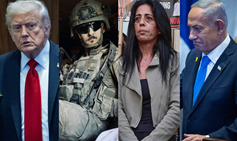

Publications Regarding Israel At War
Articles

Eric Goldstein CEO of UJA-Federation of NY with IDI's Yohanan Plesner and Shlomit Ravitsky Tur-Paz
Written By: Yohanan Plesner , Adv. Shlomit Ravitsky Tur-Paz
Eric Goldstein, CEO of UJA-Federation of New York, joined Yohanan Plesner, President of the Israel Democracy Institute, and Shlomit Ravitsky Tur-Paz, Director of IDI’s Joan and Irwin Jacobs Center for Shared Society, for an online conversation on “The Fifth Tribe,” the challenges facing American Jewry, and the relationship between Israel and the Jewish diaspora during the war and beyond.

Reuven Rivlin with Prof. Suzie Navot at the Annual Shared Society Conference 2025
Written By: Prof. Suzie Navot
Former President Reuven Rivlin, IDI's Honorary Chair and Joan and Irwin Jacobs Distinguished Fellow, joined IDI's Vice President for Research Prof. Suzie Navot at the annual Shared Society Conference for a conversation on political polarization, the urgent need for genuine constitutional reform, and what it truly means to uphold the principles of a democratic and Jewish state.

Ambassador Dennis Ross joins IDI President Yohanan Plesner and Shira Barbibay- Shaham
Written By: Yohanan Plesner , Shira Barbibay-Shaham
Ambassador Dennis Ross, the counselor and William Davidson Distinguished Fellow at the Washington Institute for Near East Policy, joined IDI President Yohanan Plesner and Shira Barbibay-Shaham on a special English-language episode of their podcast for a discussion on the emerging regional order in the Middle East, U.S.–Israel relations, and President Trump’s 20-point plan for Gaza.

State Commissions of Inquiry and the Differences from the Government's Politically Appointed Commission
Written By: Dr. Dana Blander, Adv. Mirit Lavi
The proposal to advance a politically appointed commission of inquiry into the events of October 7 is a significant departure from the accepted model of an independent state commission of inquiry. This explainer compares the two models and lays out the key details of each one.

Israel's government-appointed October 7 probe is no substitute for independent inquiry - opinion
Written By: Dr. Dana Blander
The Israeli government’s decision to establish its own committee to investigate the failures on October 7 is not enough.

What is Missing from the Court's Decision on the MAG Leak Investigation
Written By: Prof. Suzie Navot
The High Court handed down a decision allowing the Minister of Justice choose the civil servant to oversee the investigation into the Sde Teiman video leak affair in the Attorney General's stead. This sets a concerning precedent and ignores the current political reality in Israel.

Israelis Think US Administration Has Greater Influence on Israel's Security Decisions Than Israeli Government
Written By: Prof. Tamar Hermann, Dr. Lior Yohanani, Yaron Kaplan, Inna Orly Sapozhnikova
The largest share of respondents think that the United States has the greater influence on security decisions relating to Israel—almost double the share of those who think that the reins of security are in the hands of the Israeli government. The majority of Israelis think that Israel’s security is one of US President Trump’s central considerations.

Don't Turn the MAG Affair Into a Political Weapon
Written By: Prof. Benjamin Porat
All participants in Israel’s public discourse would do well to use this astonishing affair to repair the legal system, not to score points against ideological rivals.

Two Years since Oct. 7: Majority of Israelis say the Time Has Come to End the War
Written By: Prof. Tamar Hermann, Dr. Lior Yohanani, Yaron Kaplan, Inna Orly Sapozhnikova
A special survey released as Israel prepares to mark two years since the start of the war on October 7, 2023 finds: 66% of Israelis say the time has come to end the war in Gaza – up 13 percentage points since this time last year. The top reason Israelis say the war should end is the endangerment of the hostages, among both Jews (50.5%) and Arabs (34.5%). 64% of Israelis think Netanyahu should take responsibility for Oct. 7 and resign, either now (45%) or after the war (19%).

The Case for Nuance and Complexity in Israel's Polarized Politics
Written By: Prof. Benjamin Porat
Now more than ever, Israelis must be empowered to form complex, non-sloganeering positions that may not fit superficially into existing frameworks. This is the key to breaking free from the simplistic, dichotomies and gridlock in which our discourse is trapped.

Even on the Right, Largest Share of Israelis Support Hostage Deal That Includes Full Withdrawal from Gaza
Written By: Prof. Tamar Hermann, Dr. Lior Yohanani, Yaron Kaplan, Inna Orly Sapozhnikova
About two-thirds of the public support a deal that would include the release of all the hostages in exchange for the cessation of hostilities and the withdrawal of the IDF from all of the Gaza Strip. A majority of Jewish and Arab Israelis oppose Jewish settlement in Gaza. Around one-third of the general public think that Israeli society will be able to bear the burden of prolonged fighting for only a few more months.

Israel Must Consider the Economic Consequences of Occupying Gaza
Written By: Prof. Karnit Flug, Prof. Jacob Frenkel

Israel's Education System Has Lost its Compass
Written By: Dr. Tammy Hoffman
The education system is obligated to create, for all students in Israeli society, a common foundation for life in a Jewish and democratic state. This includes the ability of students to engage in difficult discussions and requires educators who are grounded in civic responsibility and democratic values.

It's Time to Talk About the Far-Reaching Potential Implications of Occupying Gaza
Written By: Dr. Eran Shamir-Borer
Against the backdrop of reports indicating the possibility of Israel fully occupying the Gaza Strip, it is essential to address the moral, strategic, international, security, economic, and social ramifications associated with such a move.

The Hidden Lesson of Israel's Iran Victory
Written By: Yohanan Plesner
Israel’s victory over Iran was not just a triumph of military strategy—it was a testament to democracy and moral clarity. In a region plagued by autocracy, it is Israel’s enduring commitment to freedom, pluralism, and the rule of law that gives it the resilience and strength to prevail.

Large Majority of Jewish Israelis: Israel Making Substantial Efforts to Avoid Palestinian Suffering; Majority of Arab Israelis Disagree
Written By: Prof. Tamar Hermann, Dr. Lior Yohanani, Yaron Kaplan, Inna Orly Sapozhnikova
78% of Jewish Israelis and 22.5% of Arab Israelis think that, given the circumstances of the fighting in Gaza, Israel is making efforts to avoid causing suffering to the Palestinian population there. Nearly half of the Israeli public thinks that the security forces and enforcement agencies are too lenient in their responses to violence by groups of settlers against both the IDF and Palestinians.

The implications of increased international recognition of a Palestinian State
Written By: Prof. Amichai Cohen
International law stipulates that for a state to exist, there must be a territory, a defined population, a government controlling that territory, and independence from the management of another state over that territory. What are the implications for Israel of more countries planning to recognize a Palestinian state?

Are Israelis abroad in danger of arrest over war crime allegations?
Written By: Dr. Eran Shamir-Borer
Kan English's Mark Weiss spoke to the Director of IDI's Center for Security and Democracy Dr. Eran Shamir-Borer over the potential of Israelis who have served in Gaza to be arrested and questioned when traveling abroad. They discuss why this is happening, the legal framework, the organizations involved, and steps soldiers can take to mitigate the risk of this happening to them while traveling.

58% of Jewish Israelis; 71% of Arab Israelis think Israel's Security is a Key Consideration for President Trump
Written By: Prof. Tamar Hermann, Dr. Lior Yohanani, Yaron Kaplan, Inna Orly Sapozhnikova
58% of Jews and 71% of Arabs think Israel's security is a key consideration for President Trump. A majority of Jews (60%) think that Israel has achieved most or all of its goals, while only 37% of Arabs concur. A plurality of Jews are optimistic that a deal to end the war in Gaza will be reached soon (50%) and that there is a high likelihood of a regional peace process beginning (48%). Among Arabs, a plurality think there is a LOW likelihood of both scenarios (49% Gaza / 45% regional peace process).

International Law and the War with Hamas
Written By: Prof. Amichai Cohen
BICOM's Richard Pater speaks with IDI's Professor Amichai Cohen about international law in the context of Israel's war with Hamas. In this episode, they cover Israel's conduct in Gaza, the rules of engagement, humanitarian assistance, and Israel's goals in Gaza.

The Iran War and Lessons for Israel's Education System
Written By: Dr. Shlomit Shahino Kesler
As the school system shuttered yet again in the war with Iran, Israeli society debates everything from safety to solidarity, but leaves out a critical virtue: the education of our children. Israel's ultra-Orthodox society, in spite of its refusal to be part of the Israeli collective experience, puts education at the core of its value system – what can the rest of the Israeli public learn from them?

Even in Times of Crisis, Police Must Be in Command of Civilian Defense Squads
Written By: Adv. Mirit Lavi, Dr. Yael Litmanovitz
The work of civilian defense squads serves a real security need and bolsters the functioning of the police. But an incident from the Israel-Iran war reminds us that, even in an emergency, they are still subject to the law and must still operate within the limits and frameworks set for them by the police.

Israelis United in Confronting Iran - What's at Stake Next?
Written By: Yohanan Plesner

Operation Rising Lion: A Special Home Front Situation
Written By: Prof. Amichai Cohen, Adv. Mirit Lavi
What are the implications of declaring a "special home front situation", and what powers does such a declaration confer to Israeli authorities? Are the restrictions that the government has imposed on citizens leaving Israel legal? What rights do citizens have in areas regarding which such a declaration has been made? What’s the difference between a "special home front situation" and the ongoing "emergency situation" that has long been in force in Israel? This article explains these issues, and more.

Lack of Protective Structures Against Missile Attacks in Arab Localities
Written By: Adv. Lital Piller
As Israeli citizens are facing severe threats to their safety during following an escalation of hostilities between Israel and Iran, it is, once again, clear that Arab localities lack proper protective infrastructure against missile attacks.

Israel’s Shin Bet Saga, Continued
Written By: Prof. Amichai Cohen, Prof. Yuval Shany
Following Ronen Bar’s resignation and an HCJ judgment, Netanyahu has rushed to propose a new Shin Bet head, inviting legal challenges.

Israel's Aid Obligations Under International Law
Written By: Dr. Eran Shamir-Borer
Dr. Eran Shamir Borer on Kan Radio English

October 7, 2023: The Government vs. a State Commission of Inquiry
Written By: Dr. Dana Blander
The announcement by the government this week that it does not intend to form a state commission of inquiry is a grave error—this is not only a civic and moral failure, it also harms Israel's national security and prevents the nation from healing.

Israelis Are United – It’s Time for Our Leadership to Follow Suit
Written By: Yohanan Plesner
Polls reveal that despite apparent polarization, Israelis are remarkably united on almost every issue of importance, prioritizing hostage release, ending Haredi draft exemptions, and anchoring a constitutional framework—leaving only their leaders out of step with the national consensus.

Behind Every Written Word Lies a Person. A Story. A Life.
Written By: Prof. Benjamin Porat

Yellow Stars and Yellow Ribbons: Lessons and Limits of Linking Holocaust Memory to October 7
Written By: Dr. Tammy Hoffman
Linking October 7 to the Holocaust shapes Israeli memory and identity—but while the parallels evoke deep emotion, this connection must also serve as a call for democratic resilience, not a retreat into victimhood.

Limited Protection: Israel’s High Court of Justice Rejection of Gaza Humanitarian Aid Petition
Written By: Prof. Yuval Shany, Prof. Amichai Cohen
The Israeli Supreme Court rejected the Gaza Humanitarian Aid petition submitted by a number of Israeli human rights NGOs, stating that Israel's obligations are relative in nature and that the petitioners had failed to establish that these were generally violated during the Gaza war.

Majority of Israelis Support a Deal to Release All Hostages and End the War
Written By: Prof. Tamar Hermann, Dr. Lior Yohanani, Yaron Kaplan, Inna Orly Sapozhnikova
A majority of Israelis (57.5%) support a comprehensive deal for the release of all the hostages in return for an end to the war in Gaza; Most Israelis think the current situation in Syria serves Israeli interest (52.5%); 68% of all Israelis, as well as 60% of Likud voters, are opposed to a law exempting Haredim from military service, even if this would mean a dissolution of the Knesset and new elections.

The War in Gaza: Who is Authorized to Approve a Deal for the Return of the Hostages in Exchange for the Release of Palestinian Prisoners?
Written By: Dr. Moran Kandelshtein-Haina
What are the legal steps that must be taken when a deal includes the freeing of Palestinian prisoners from Israeli prisons?

Reserve Duty During the Iron Swords War by Religious Self-Definition
Written By: Dr. Ariel Finkelstein, Nadav Porat Hirsh
This study presents a survey of the distribution of reserve duty among the various religious groupings within the Jewish population, along with more in-depth analysis regarding the age and gender of reservists.

"As You Stand Silent" – Has October 7th Changed the Haredi Community? - English Introduction
Written By: Adv. Shlomit Ravitsky Tur-Paz

IDI Releases New Survey Findings on Haredim; Convenes Haredi & Arab Leaders to Advance Shared Society
Written By: Israel Democracy Institute
The Israel Democracy Institute’s Joan and Irwin Jacobs Center for Shared Society convened its annual conference to discuss key issues of shared society.

A “Cramped Interpretation of International Jurisprudence”? Some Critical Observations on the Amnesty International Genocide Report on Gaza
Written By: Prof. Amichai Cohen, Prof. Yuval Shany
Amnesty International's report on the war in Gaza fails to prove acts of genocide by Israel, even when attempts are made to move the goalposts.

The ICC Palestine Case in the Aftermath of the Arrest Warrants Decisions – Part Two
Written By: Prof. Yuval Shany, Prof. Amichai Cohen
In the second installment of their two-part analysis of the ICC's decision to issue arrest warrants against Israeli leaders, Prof. Yuval Shany and Prof. Amichai Cohen examine the arguments behind the arrest warrants and steps Israel can take to prevent them from being realized.

ICC Arrest Warrants against Israeli Leaders - Legal and Practical Implications
Written By: Prof. Yuval Shany
IDI's Prof. Yuval Shany and Prof. Irwin Cotler discuss the ICC arrest warrants issued against Israel's Prime Minister and former Defense Minister. The event was hosted by the International Jewish Lawyers organization in partnership with the American Association of Jewish Lawyers and Jurists (AAJLJ).

Israelis Divided on Whether Netanyahu Can Fully Function as Wartime Prime Minister While Testifying on Trial
Written By: Prof. Tamar Hermann, Dr. Lior Yohanani, Yaron Kaplan, Inna Orly Sapozhnikova
48% of Israelis think PM Netanyahu cannot fully function as a wartime prime minister while testifying on trial, a large majority of Israelis think Trump will prioritize Israel's security, and a clear majority (61%) think the main reason behind the ICC's decision to issue arrest warrants is the Court's longstanding anti-Israel bias.

JFNA & IDI Webinar on The Implications of the ICC Warrants
Written By: Dr. Eran Shamir-Borer,

The International Criminal Court Issues Arrest Warrants Against Prime Minister Netanyahu and Former Defense Minister Yoav Gallant
Written By: Dr. Eran Shamir-Borer, Prof. Amichai Cohen
The ICC's unprecedented arrest warrants against leaders of a democratic state carry severe and far-reaching consequences, yet Israel still has far-reaching options to mitigate the damage.

Politicizing Accountability: The Proposed "Public Committee of Inquiry"
Written By: Dr. Dana Blander
The proposed "Public Committee of Inquiry," for investigating the events of October 7th and its aftermath, is an attempt to circumvent the existing framework for such investigations and is unlikely to gain public trust.
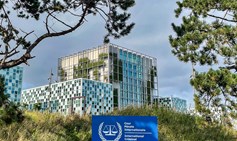
ICC Arrest Warrants Against Netanyahu and Gallant: Consequences and Potential Solutions
Written By: Prof. Amichai Cohen
Israel will likely not succeed in forcing the Court to annul its orders, and attempting to do so will make it even harder for its allies to support it. Instead, it can conduct an independent and effective investigation, avoiding problematic statements, and adhere to the laws of armed conflict.

The ICC Palestine Case in the Aftermath of the Arrest Warrants Decisions – Part One
Written By: Prof. Yuval Shany, Prof. Amichai Cohen
On November 21, 2024, the Pre-Trial Chamber of the International Criminal Court (ICC) issued four decisions. These deal with various legal matters arising out of the Prosecutor’s May 20 request to issue arrest warrants as part of his ongoing investigation of the Situation in Palestine, in the context of the War in Gaza.

Emergency support for Israel must also go toward strengthening its democratic institutions
Written By: Mr. Amir Elstein
Physical reconstruction and addressing emergency needs are helpful, but to really make a difference post-Oct. 7 donors should focus on improving Israeli governance and civil society

High Levels of Trust in IDF More than One Year Into the War, Except Among Ultra-Orthodox and Arab Israelis
Written By: Viterbi Family Center for Public Opinion and Policy Research, Center for Security and Democracy
A special survey assessing public opinion on matters of national security, presented at IDI's annual conference on Security and Democracy. The survey found support for a mandatory draft, and significant economic penalties for those who do not serve.

Conversations with Cosgrove: Israel's Democracy with Yohanan Plesner
Written By: Yohanan Plesner
Rabbi Cosgrove discusses the current political climate in Israel with Yohanan Plesner.

The Impact of the War on Israel's Arab Population in the Labor Market
Written By: Yarden Kedar
An analysis of the effects of the war on employment within Israel's Arab population.

Why Does Everyone Except the Prime Minister Want a State Commission of Inquiry?
Written By: Dr. Dana Blander
Establishing a State Commission of Inquiry is the civic, moral, and public duty at the highest order. And it must be done now.

The Two Coalitions Israel Needs Now
Written By: Yohanan Plesner
It is increasingly clear that Israel’s future depends on the forging of two coalitions. One is a multinational alliance determined to turn the Palestinian issue from a driver of conflict into an engine of peace. The other, is an internal Israeli coalition ready to pursue a series of bold social, economic, and political reforms.

One Year of War - Public Opinion in Israel at the One Year Anniversary of the War in Gaza
Written By: Prof. Tamar Hermann, Dr. Lior Yohanani, Yaron Kaplan
A public opinion survey marking the first anniversary of the October 7th attacks and one year into the "Iron Swords" war.

The Sde Teiman HCJ Judgment: Too Little, Too Late?
Written By: Prof. Amichai Cohen, Prof. Yuval Shany
A recent judgment of the Israeli Supreme Court held that conditions in a notorious detention center must comply with Israeli law.

'Northern Arrows' Special Survey: Overwhelming Support for the Lebanon Offensive; Jews and Arabs Split
Written By: Prof. Tamar Hermann, Dr. Lior Yohanani, Yaron Kaplan
Jewish Israelis are broadly united (90%) in their belief that launching an in-depth offensive against Hezbollah is the correct move, while the largest share of Arab Israelis (47%) think it was not. A large majority of Israelis, over 70%, think both the IDF and Israel's civilian population would be able to withstand an extended war on two or more fronts.

October 7 and 9/11, As Taught In Classrooms
Written By: Dr. Tammy Hoffman
The connection between October 7th and September 11th are not just in the magnitude of the tragedy and their ongoing global impact, but in the messaging and paradigms introduced into the educational system, as it attempts to tackle this fateful event. The education system has a critical role to play in allowing society to deal constructively with the consequences of the current war.

Israelis Split on Motivations for Holding the Philadelphi Corridor
Written By: Prof. Tamar Hermann, Dr. Lior Yohanani, Yaron Kaplan
Israelis are divided on the question of the main reasons for Netanyahu's demand that Israel continues to control the Philadelphi Corridor. While over half of the Jewish respondents (58.5%) think this decision is based on military and strategic considerations, 66.5% of Arab-Israeli respondents thing it is due to political reasons.

The Security Cabinet Should Play a Greater Role in Determining Hostage Negotiations
Written By: Prof. Amichai Cohen, Adv. Mirit Lavi
The Prime Minister’s decision to retain the power to determine the parameters and scope of the hostage deal as a “policy issue” disregards the implications such a deal has on security issues. Israeli history underscores the importance of convening the security cabinet and upholding the appropriate democratic channels in times of war.

The Majority of the Israeli Public Supports Establishing a State Commission of Inquiry into the Events of October 7
Written By: Dr. Dana Blander, Dr. Eran Shamir-Borer, the Viterbi Family Center for Public Opinion and Policy Research
A special survey conducted in July 2024 evaluated public opinion on the need to establish a commission of inquiry into the tragic events of October 7th, 2024.

Across Political Orientations; Jewish and Arab Israelis Have Negative Feelings Toward the Government
Written By: Prof. Tamar Hermann, Dr. Lior Yohanani, Yaron Kaplan
Across the Left, Right and Center, rates of Jewish Israelis who say the feel "anger," "disappointment" or "frustration" are considerably higher than those expressing satisfaction, pride, or trust. A large majority of Israelis (70%) support the establishment of an inquiry into the events of Oct. 7th, but do not agree on the timing of such an inquiry.

Even Against Terrorists – The Rule of Law Prevails
Written By: Prof. Suzie Navot, Adv. Sapir Paz
The rule of law is a fundamental democratic principle, meaning that all governing bodies are subject to and must comply with the law. Despite the complexities inherent in ongoing war, this is true also of the IDF, and only decisive action against breaches of conduct may protect the rule of law in Israel and Jewish morality.

Investigating Allegations of Detainee Abuse is Israel’s Moral and Legal Duty - And a Diplomatic Necessity
Written By: Prof. Amichai Cohen, Dr. Eran Shamir-Borer
Investigating allegations of abuse at the Sde Teiman detention facility is Israel's moral and legal duty as a rule-based democracy and protects the country on the international legal and diplomatic front.

Most Israelis Support Deal to Release All Hostages and End the War in Gaza; Israelis Divided on How to Handle the Northern Front
Written By: Prof. Tamar Hermann, Dr. Lior Yohanani, Yaron Kaplan
Across the total sample, 56% of Israelis support a deal to release all the hostages and end the war in Gaza; 29.5% support a deal to release some hostages in exchange for a temporary ceasefire; 14.5% don't know.

A Two-Tiered Process of Accountability for October 7
Written By: Dr. Dana Blander
A state commission of inquiry is a vital step, but it is up to the public to ensure Israel's leaders are truly held accountable.

In Search of Complementarity: Israel’s Possible Responses to ICC Arrest Warrants
Written By: Prof. Yuval Shany, Prof. Amichai Cohen
If properly structured, both a commission of inquiry and a preliminary examination by the Israeli police could arguably meet existing complementarity standards.

The Key to Revitalizing Israel-US Relations Lies Between Moscow and Beijing
Written By: Dr. Jesse Ferris
The roots of the crisis between Israel and the United States are supposedly in Rafah. But the key to resurrecting the relationship lies far from Gaza, between Moscow and Beijing.

Netanyahu Government Gets Low Grades Across Various Wartime Issues
Written By: Prof. Tamar Hermann, Dr. Lior Yohanani, Yaron Kaplan
Across the issues of US-relations, the war in Gaza, evacuees from the south and the north, fighting Hezbollah, and public diplomacy efforts abroad—both Jewish and Arab Israelis give the government low grades.

The International Court of Justice (ICJ) Order on the IDF Operation in Rafah: Commentary and Implications
Written By: Dr. Eran Shamir-Borer
The issuance of additional interim orders in the genocide proceedings underway at the ICJ limits Israel’s operational wiggle room in Rafah, but leaves it with some flexibility in the interpretation and implementation of the new orders.

The Threat of Militias Harm Democracy and the Stability of the State
Written By: Dr. Yael Litmanovitz, Adv. Mirit Lavi
A serious public and governmental discussion is needed regarding the privatization of internal security governance that we are currently witnessing, and its implications. This privatization threatens us all.

What Constitutes Professional Judicial Conduct? Barak’s Lesson to the ICJ Judges
Written By: Prof. Suzie Navot
The International Court of Justice in The Hague (ICJ) issued new temporary orders against Israel this week. Justice Barak’s dissenting opinion would seem to offer an important lesson for the future. Professional, focused, and well-founded legal criticism—as opposed to the very different means that are currently being widely discussed and pursued—is likely the best way to deal with the ICJ.

The Prosecutor’s Uphill Legal Battle?: The Netanyahu and Gallant ICC Arrest Warrant Requests
Written By: Prof. Yuval Shany, Prof. Amichai Cohen
In this article, we wish to identify and discuss here some potential problems we identify in the part of the request pertaining to Netanyahu and Gallant, at least as it was presented in the Prosecutor’s short announcement and by the expert report supporting it.

The Effects of ICC Warrants on Israel
Written By: Prof. Amichai Cohen
IDI's Prof. Amichai Cohen, an expert in international law, explains the repercussions that ICC warrants may have on Israel. Should these warrants be issued, 120 countries would be obligated to execute them. They could severely damage Israel's international image, impacting Israeli officials as well as economic and cultural cooperation

A Majority of Jewish Israelis See a Hostage Deal as a Higher National Priority Than Military Action in Rafah
Written By: Prof. Tamar Hermann, Dr. Lior Yohanani, Yaron Kaplan
The majority of the Jewish public (56%) think that securing a deal for the release of the hostages is the highest priority; a higher share of Jewish respondents think Trump would be better for Israel as US president; most Israelis think that celebrations of Israel's 76th Independence Day should be more restrained and less prominent this year.
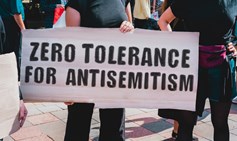
Digital Antisemitism: The Largest Propaganda Machine Since the Holocaust
Written By: Dr. Tehilla Shwartz Altshuler
We have entered an era of "digital antisemitism." It is driven, first and foremost, by the insufficient enforcement of moderation policies on social media platforms

ICC Arrest Warrants Would Harm Israel at Home and on the International Stage
Written By: Prof. Amichai Cohen
From damage to scientific collaboration to cancellation of arms deals, arrest warrants for senior Israeli officials from the International Criminal Court in the Hague would pose a serious challenge to Israel
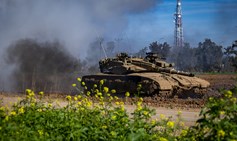
Israelis say the time has come for those responsible for October 7 to step down
Written By: Prof. Tamar Hermann, Dr. Lior Yohanani, Yaron Kaplan
After more than six months of war, we found that among both Jewish (58%) and Arab Israelis (81%) there is widespread agreement that now that the majority of Israeli forces have left the Gaza Strip, the time has come for those who were responsible for the failure of October 7 to resign from their positions.
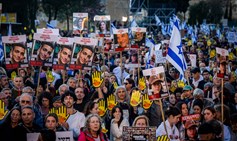
Across the Political Spectrum, Only a Minority of Israelis Think the Government will Survive to the End of its Term
Written By: Prof. Tamar Hermann, Dr. Lior Yohanani, Yaron Kaplan
Slightly more than half of Jewish respondents think that the government is doing all it can to bring the hostages home; only a minority of Arabs concur. Only a minority of Israelis think the government will complete its four-year term and a majority of Israelis think that Hamas has succeeded in refocusing international attention on the Palestinian problem.

JFNA & IDI Webinar on Israel’s Economy with Prof. Karnit Flug and Bloomberg News’ Galit Altstein
Written By: Prof. Karnit Flug,
IDI's Prof. Karnit Flug, VP of Research and the William Davidson Senior Fellow for Economic Policy joined Jeff Schoenfeld, Chair of the Jewish Federation's Israel and Overseas Committee and Bloomberg's Galit Altstein to discuss the implications of the ongoing war in Gaza on Israel's economy.
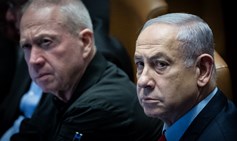
Majority of Israelis give low ratings to Prime Minister Netanyahu; high ratings to IDF Chief of Staff
Written By: Prof. Tamar Hermann, Yaron Kaplan, Dr. Lior Yohanani
The majority of Israelis gave Prime Minister Netanyahu low ratings (57%), while IDF Chief of Staff Herzi Halevi topped the rankings of positive performance (48%). More than two-thirds of Israelis think we are on the verge of an all-out-war with Hezbollah – 69%.
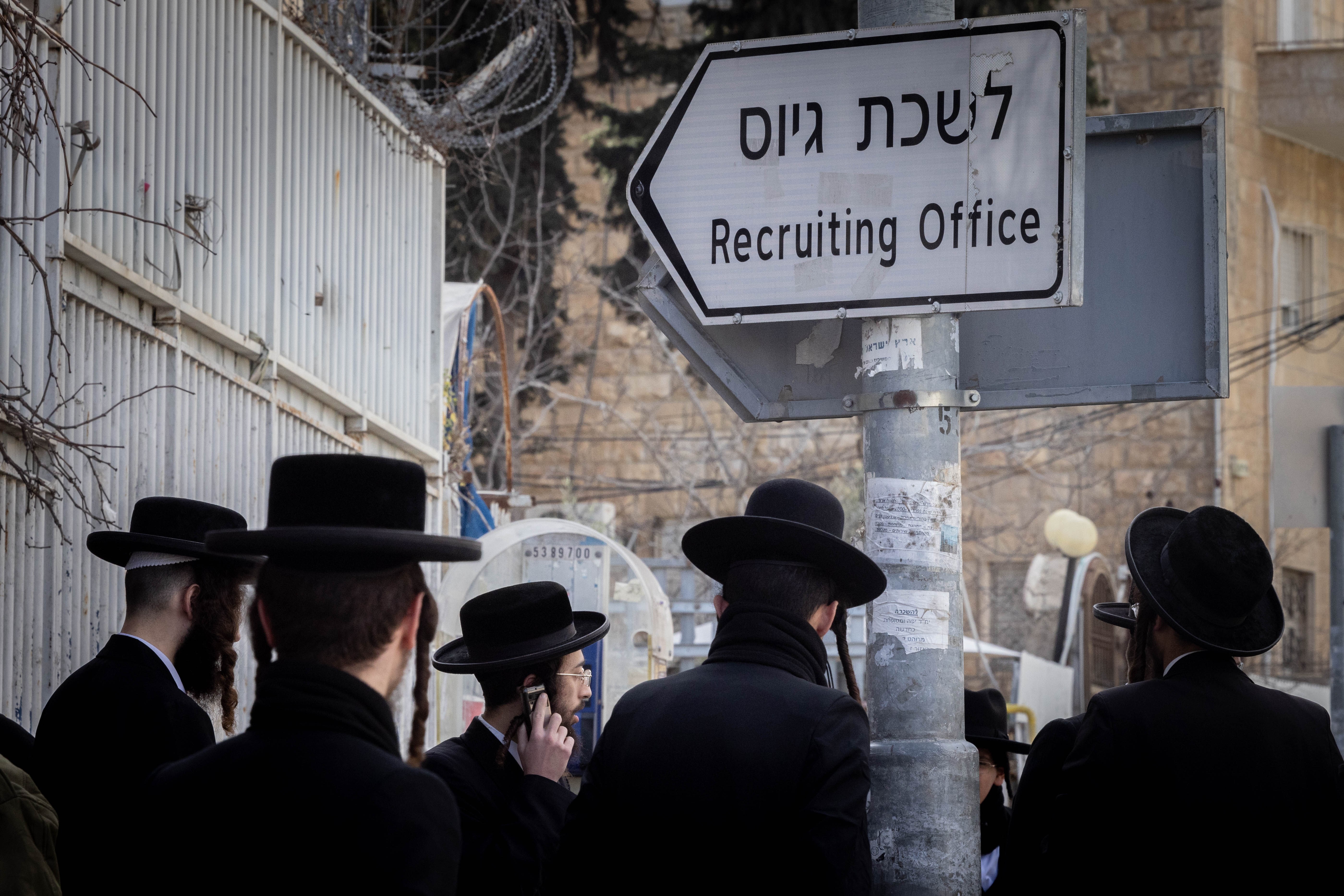
Large Majority of Jewish Israelis Want Changes to the Conscription Law
Written By: Prof. Tamar Hermann, Yaron Kaplan
Most Israelis would like to see the exemption given to the Haredi community changed; when asked whether the Israel can continue relying on the US's support, public opinion was divided, with an inclination toward continued reliance; around half of Israelis think Israel's standing in the international arena is not good.
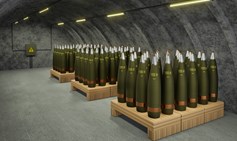
What happens when Israel runs out of ammo?
Written By: Dr. Jesse Ferris
With US arsenals stretched to the limit and other allies lining up for their share, it's time to forge a new defense supply channel.
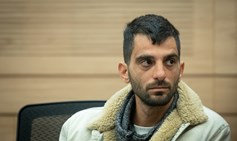
The Sanctions Against Israelis
Written By: Prof. Amichai Cohen
The US, the UK, France and other states have announced the imposition of economic sanctions on Israeli residents who are believed to be complicit in 'settler violence.' This document aims to outline the framework of international economic sanctions and contextualize the sanctions imposed on Israelis.
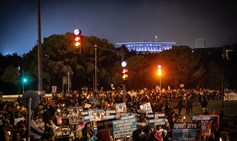
Most Israelis: an "Absolute Victory" to the War is Unlikely
Written By: Prof. Tamar Hermann, Yaron Kaplan
Most Israelis think Palestinian terrorism will remain the same or increase if a Palestinian state were declared. A vast majority (81%) of Israelis think the likelihood of reform in the Palestinian Authority is low, while a majority of Israelis think absolute victory in Gaza is unlikely.
When the 'keyboard Mujahideen' discovered AI
Written By: Dr. Tehilla Shwartz Altshuler
Foreign Israel critics use advancements in AI, including ChatGPT, to misrepresent their actions through Hebrew translations; addressing this requires international laws to make AI developers accountable.
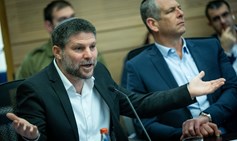
On Moody's Credit Downgrade: Economic Policy Change Cannot Wait.
Written By: Prof. Karnit Flug
Over the weekend, Moody’s Investors Service announced that it had downgraded Israel’s credit rating from A1 to A2 and assigned it a “negative” credit outlook. Our policymakers would be well advised to study the risk analysis and assessment in Moody’s report closely and to take all possible steps to mitigate the risks.
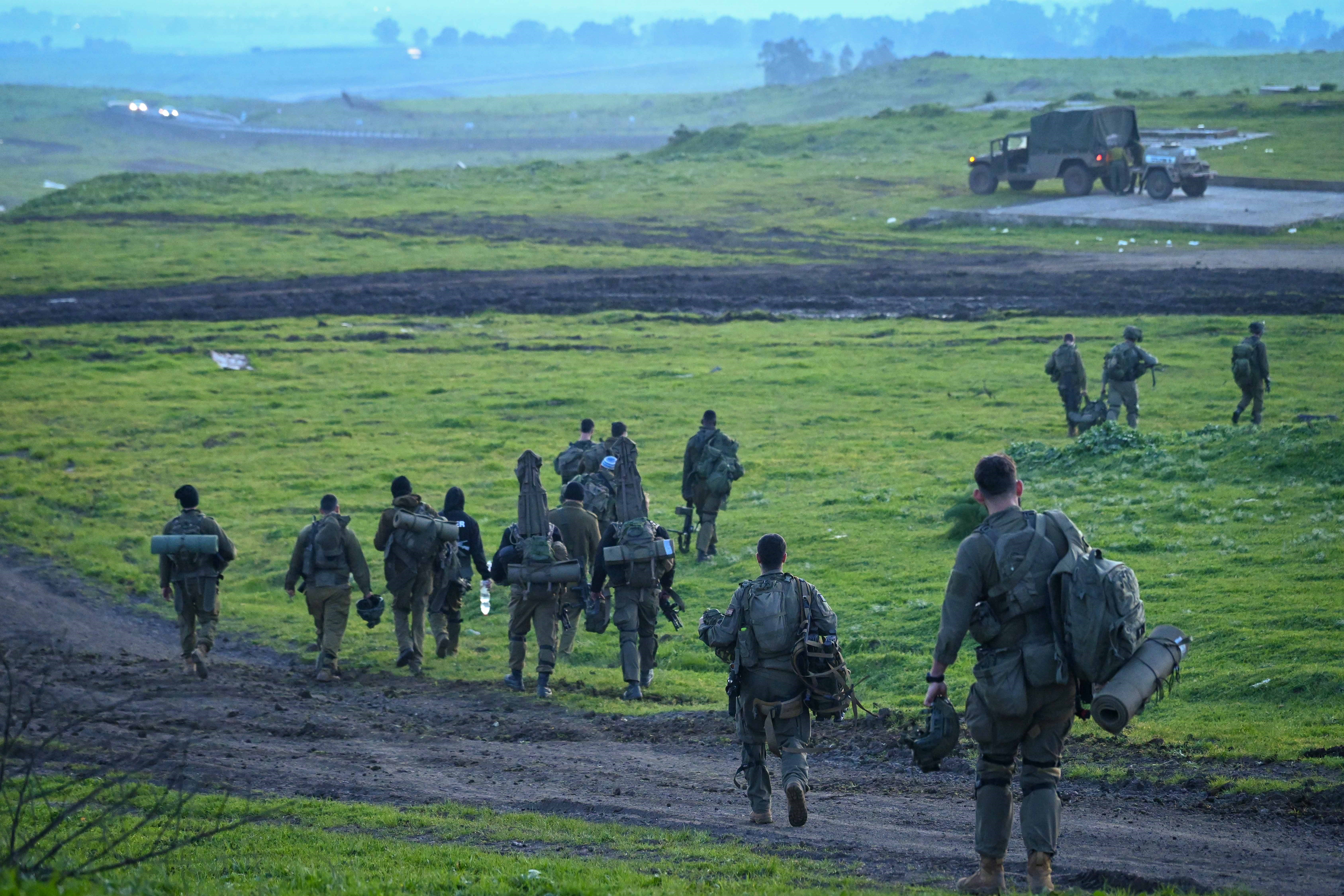
A More Targeted Approach to IDF Reservist Compensation
Written By: Dr. Carmit Padan
Israeli reserve soldiers are making unimaginable sacrifices to protect their country. To rise to the challenge of meeting the IDF's expanded personnel needs, Israel's policy solutions must be as diverse as are the reservists serving this nation. A "one-size-fits-all" compensation approach will not cut it.
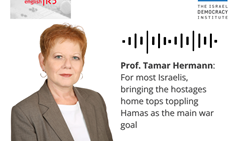
For the Israeli Public, Bringing the Hostages Back is the Top Priority
Written By: Prof. Tamar Hermann
Prof. Tamar Hermann, on Kan English podcast: Most Israelis prioritize a hostage release over toppling Hamas, with 51 percent of Israelis saying they think bringing the hostages home should be the main goal of the war, while 36 percent say toppling Hamas should be the main goal, according to a new survey conducted by the Israel Democracy Institute. At the same time, there are large divides by population sectors, the January 2024 Israeli Voice Index found.
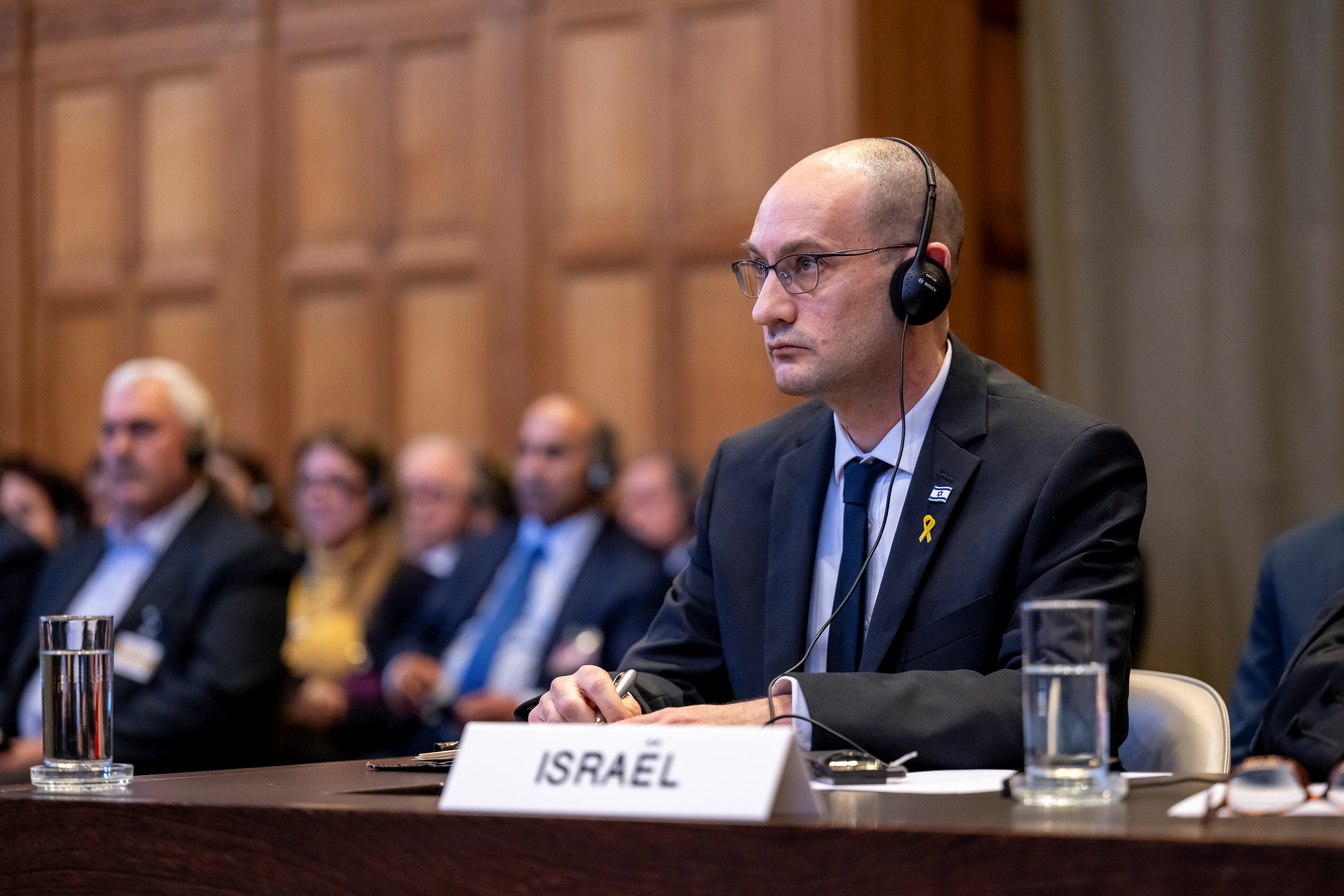
A Large Majority of Israelis Want Early Elections
Written By: Prof. Tamar Hermann, Dr. Or Anabi
59% of Jewish Israelis oppose a deal that would lead to the establishment of a Palestinian state with guarantees from the US and peace agreements with Arab states such as Saudi Arabia; when asked to choose, 51% of Israelis said they think the main goal of the war should be bringing the hostages home and 36% think it should be toppling Hamas; half of Israelis think the ICJ ruling, issuing temporary measures, to be harsh.

Between Rhetoric and Effects: The ICJ Provisional Measures Order in South Africa v. Israel
Written By: Prof. Amichai Cohen, Prof. Yuval Shany
In its order on provisional measures, the Court appeared to engage in transactional justice. It used harsh rhetoric to describe the catastrophic situation in the Gaza Strip while minimizing the impact of the order by adopting ambiguous language on the contents and scope of the plausibility test.
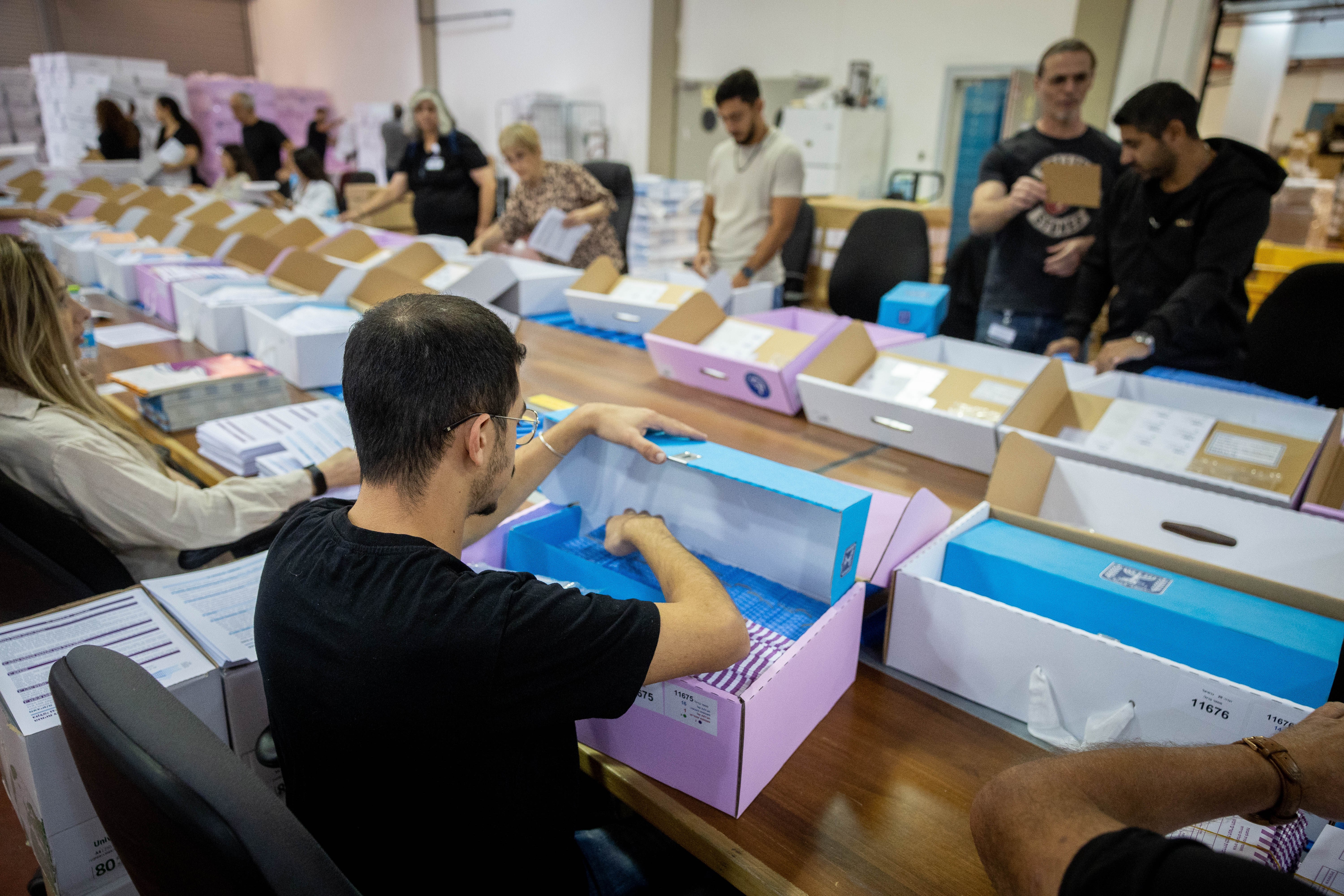
Your Questions Answered About Israel's Wartime Local Elections
Written By: Dr. Assaf Shapira
In a few weeks elections will be held in local authorities across Israel. While they were originally scheduled for October 31st, 2023, they were postponed due to the outbreak of war. Elections during wartime raise a slew of challenges that are exceptional to the circumstances. Find out everything you need to know about wartime local elections in Israel.
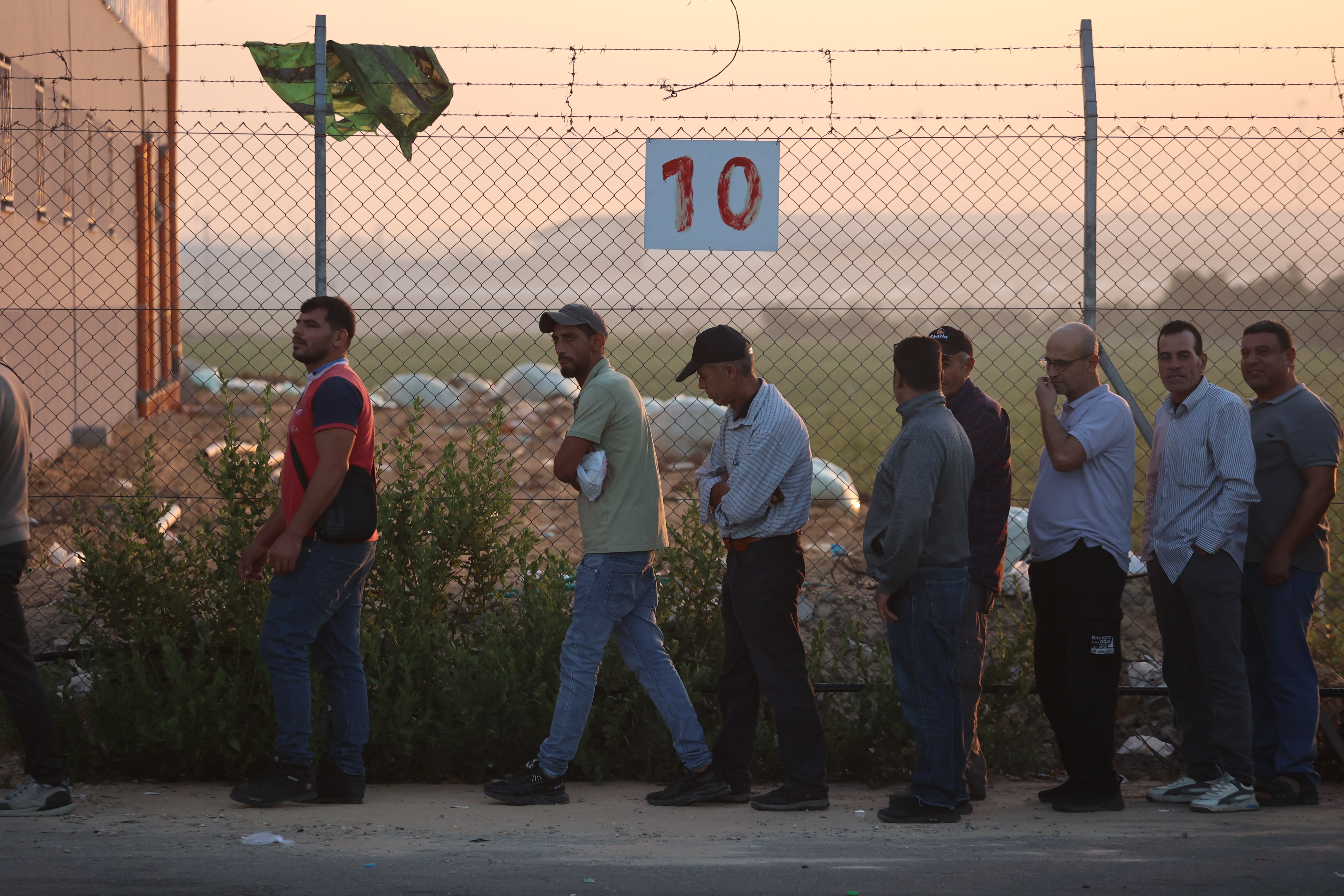
On Palestinian Workers: The Right Answer isn't Always the Easy One
Written By: Prof. Yotam Margalit
A decision to allow Palestinian workers back into Israel is not at all a simple matter. Despite recommendations by Israel's security agencies to allow entry to Palestinian workers, the Ministers of Construction and of the Economy oppose it for security reasons. As alternative solutions to the severe shortage of workers are unsatisfactory, we must ask ourselves whether we, as a country, are prepared to withstand another socioeconomic crisis.
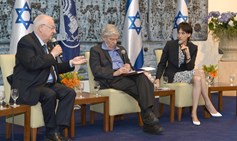
Justice Aharon Barak's Opinion Illuminated What the ICJ Missed
Written By: Prof. Suzie Navot,
While the ICJ decision briefly mentions the immediate context of the lawsuit, namely the Hamas attack on October 7, 2023, Judge Barak directs them to the full picture that they did not address. He writes about the events of October 7 as Israelis know them to be true.
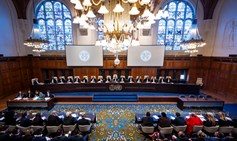
On the Delicate Balance of the ICJ Decision on Temporary Measures
Written By: Prof. Yuval Shany
While neither Israel nor South Africa achieved a complete win, one thing is clear: the story of Israel before the ICJ is only beginning
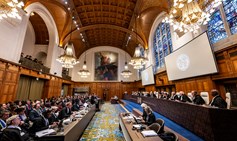
Statement on the ICJ Decision On Provisional Measures
Written By: Prof. Amichai Cohen
Prof. Amichai Cohen, a senior fellow at the Israel Democracy Institute and an expert in international law, made the following comments on the International Court of Justice (ICJ) decision today regarding provisional measures in the case of South Africa v. Israel on the Application of the Genocide Convention.

ICJ Provisional Measures in South Africa v. Israel
Written By: Prof. Yuval Shany
On Friday, January 26, the International Court of Justice issued its Opinion granting provisional measures in South Africa’s genocide case against Israel. Joining the Just Security Podcast to discuss the Court’s Opinion and its implications are law professors Adil Haque, Oona Hathaway, and IDI's Yuval Shany.
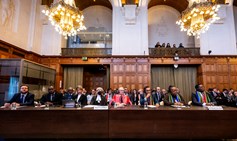
On South Africa's Misinterpretation of Amalek in Jewish Tradition
Written By: Adv. Shlomit Ravitsky Tur-Paz
Beyond the fact that the Torah does not make the call to commit genocide, the Tanach and its interpretations in fact obligate the Jewish people to abide by the laws of war. To a large extent, humanity's earliest laws of war can be found in the Bible.
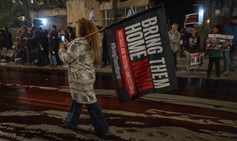
Most Israelis Oppose a Hostage Deal in Exchange for a Halt in Fighting and Releasing all Palestinian Prisoners
Written By: Prof. Tamar Hermann, Dr. Or Anabi
Most Jewish Israelis expect the war to continue for months, while a majority of Jewish respondents oppose a deal for the release of the hostages in return for the release of all Palestinian prisoners and a cessation of the fighting in Gaza. Meanwhile, over 60% of Israelis claim that their personal lives have returned to normal.

Israeli Public Is Concerned Over Budget Priorities as the War Continues
Written By: Daphna Aviram-Nitzan, Prof. Karnit Flug, Roe Kenneth Portal
This survey was conducted in order to assess public opinion regarding the preferred economic policy in light of the war in Gaza, to identify the main areas of concern to the public, and to examine the public’s views on various social issues.
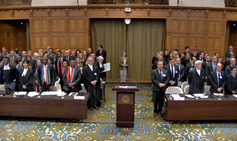
South Africa vs. Israel at the International Court of Justice: A Battle Over Issue-Framing and the Request to Suspend the War
Written By: Prof. Amichai Cohen, Prof. Yuval Shany
The International Court of Justice (ICJ) at the Hague held public hearings in the case against Israel for alleged violations of the Genocide Convention. In this essay we address three aspects of the case: the ways the parties framed the events, the request to suspend Israeli military operations, and the conditions for issuing provisional measures.
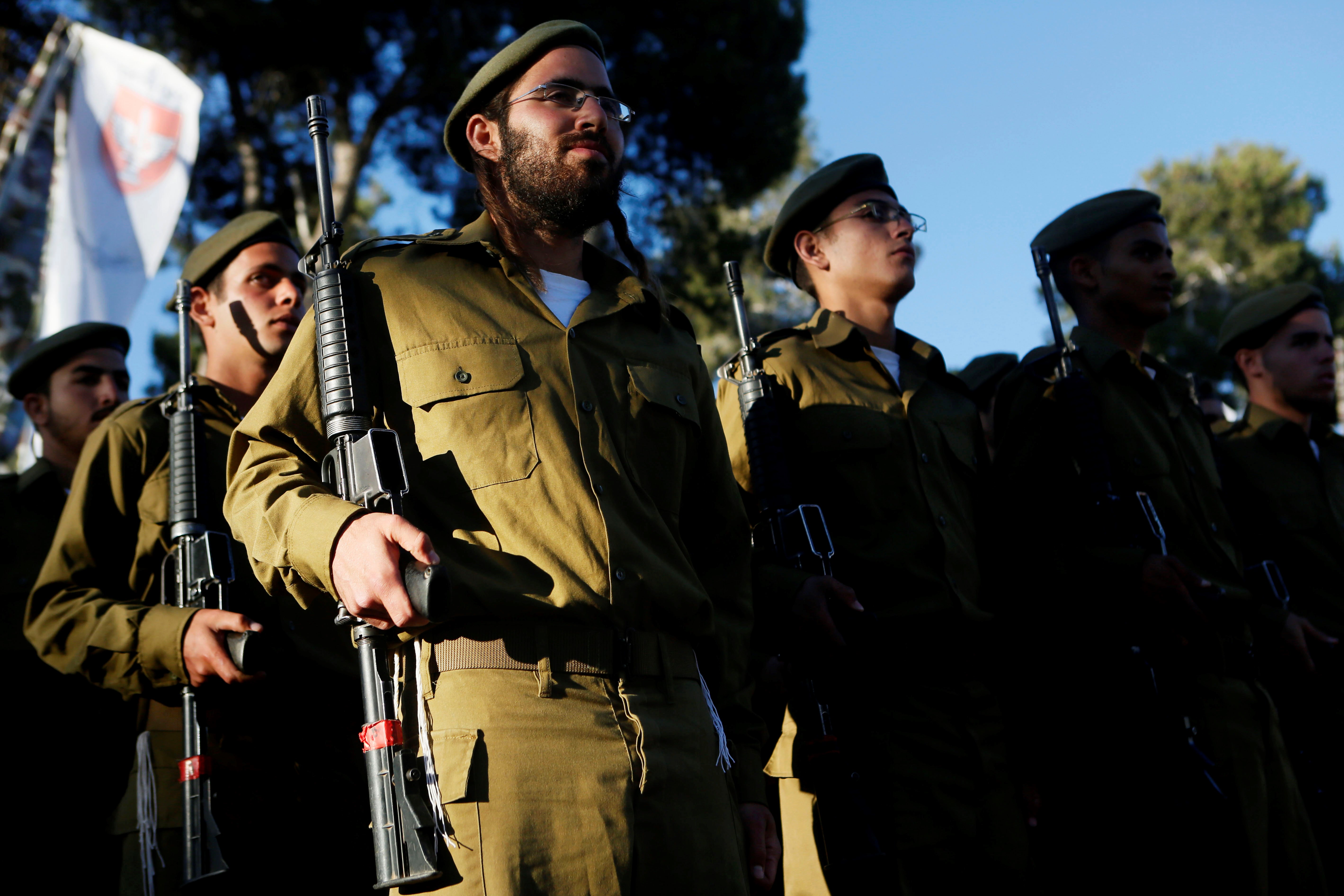
The Modern Haredi, As Envisioned by Rabbi David Leibel
Written By: Eliyahu Berkovits
Recently, a new answer to the dilemma of the 'modern Haredi' has been advanced enthusiastically by Rabbi David Leibel, one that maintains religiosity while increasing civic participation in the economy and in defense of Israel.
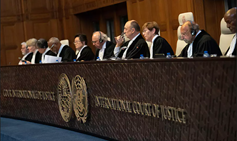
International Court of Justice in The Hague Genocide Proceedings -
Written By: Adv. Shlomit Ravitsky Tur-Paz
One of the claims brought forth in the Application against Israel that it is committing genocide against the Palestinians is that many senior members of the government made references to the biblical precept to wipe out the memory of the ancient Amaleks. This is my professional opinion on the meaning of these locutions and the use made of them in the Application.
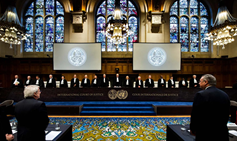
The ICJ Hearings on Israel and the War on Hamas
On January 11th, the court will begin by hearing South Africa’s oral argument, with Israel presenting its counter argument on January 12th.
What does the international law state and what are the possible implications of these proceedings on the ongoing war and Israel’s international standing? We’ve compiled a shortlist of important information you should have.

Explainer: South Africa’s Case Against Israel at the International Court of Justice
Written By: Prof. Amichai Cohen
The ICJ is hearing allegations that Israel has violated the Convention on the Prevention and Punishment of the Crime of Genocide. What is the ICJ? How is the government responding? What are the implications for the war against Hamas and Israel’s international standing?
All the answers in a special IDI explainer.
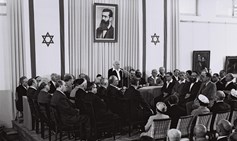
Can a unified Israel rise from the ashes of the Hamas war?
Written By: Yohanan Plesner
While we entered this war more divided than ever – and with large numbers even saying that they believed civil war to be a possibility – Israelis today are united in their determination to win.

Is Israel Doing Enough to Abide by International Law?
Written By: Prof. Amichai Cohen
IDI's Prof. Amichai Cohen answers a series of questions on international law and its dealings with the laws of war.

What Does Proportionality in War Mean?
Written By: Prof. Amichai Cohen
IDI's Prof. Amichai Cohen answers a series of questions on international law and its dealings with the laws of war.

What Are the "Laws of Armed Conflict" And Who Is a Legitimate Target?
Written By: Prof. Amichai Cohen
IDI's Prof. Amichai Cohen answers a series of questions on international law and its dealings with the laws of war.

What Does International Law Have to Say Regarding War?
Written By: Prof. Amichai Cohen
IDI's Prof. Amichai Cohen answers a series of questions on international law and its dealings with the laws of war.

What Is International Law and is Israel Obliged to Abide By It?
Written By: Prof. Amichai Cohen
IDI's Prof. Amichai Cohen answers a series of questions on international law and its dealings with the laws of war.
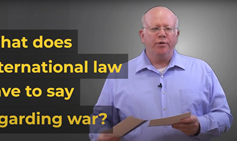
International Law and the War in Gaza
Written By: Prof. Amichai Cohen
IDI's Prof. Amichai Cohen answers a series of questions on international law and its dealings with the laws of war.
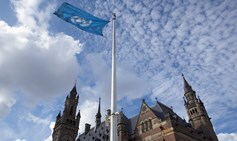
Selective Use of Facts and the Gaza Genocide Debate
Written By: Prof. Yuval Shany, Prof. Amichai Cohen
The recent application by South Africa to the International Court of Justice brought against Israel under the Genocide Convention illuminates how international law and international institutions can be employed to address the Israel-Hamas war.
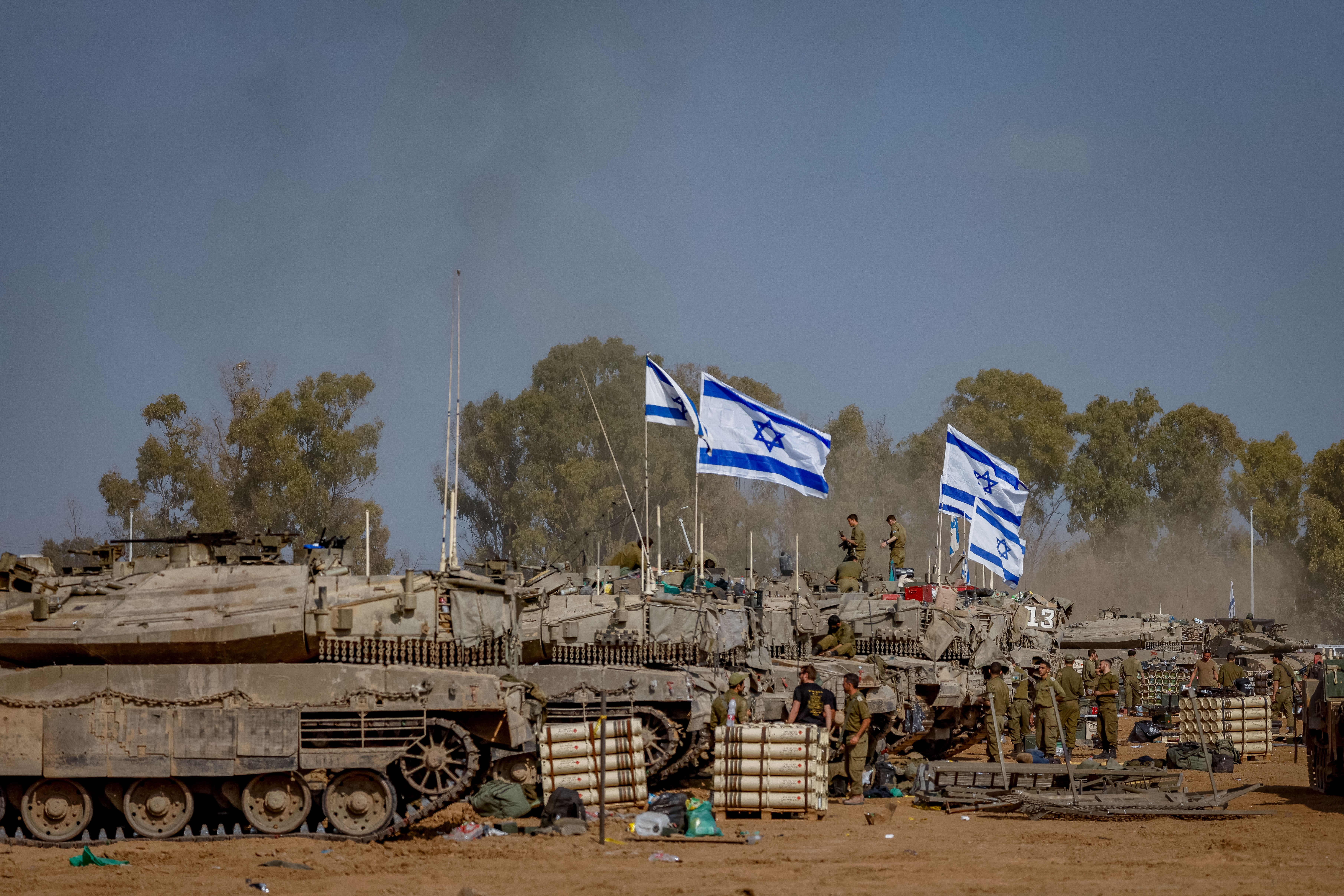
Most Israelis Oppose Meeting US Demands to Shift to New Phase of War
Written By: Prof. Tamar Hermann, Dr. Or Anabi
About two-thirds (66%) of Israelis say they do not think Israel should agree to US demands to shift to a phase of the war with a reduced heavy bombing in populous areas. 75% of Jewish Israelis oppose meeting the demands, compared to only 21% of Arab Israelis.
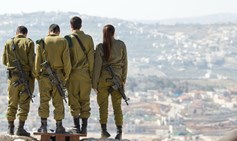
Where was God on October 7? A different perspective
Written By: Prof. Benjamin Porat
The horrific October 7 massacre undoubtedly surpasses the savagery of any other wave of terrorism Israel has ever seen. In the face of barbarity, we are called to challenge prevailing conventions, to abandon simplistic arguments, and to move toward more complex ideas that may light the path for some of us.
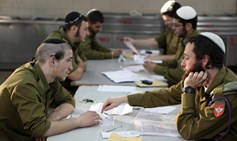
A New Social Contract with the IDF? On the Benefits of Waiting to Decide
Written By: Prof. Amichai Cohen, Dr. Gilad Malach
The need for expanded IDF service is clear—but the options for achieving this are rife with political contention and economic consequences. The time to rethink long-term security arrangements is after the fog of war lifts, under newly elected leaders with broad public legitimacy.

Israel’s Unfinished Democracy
Written By: Yohanan Plesner
As the international community ponders Gaza’s post-war future, Israelis are increasingly focused on what the ‘day after’ holds for their politics and society.
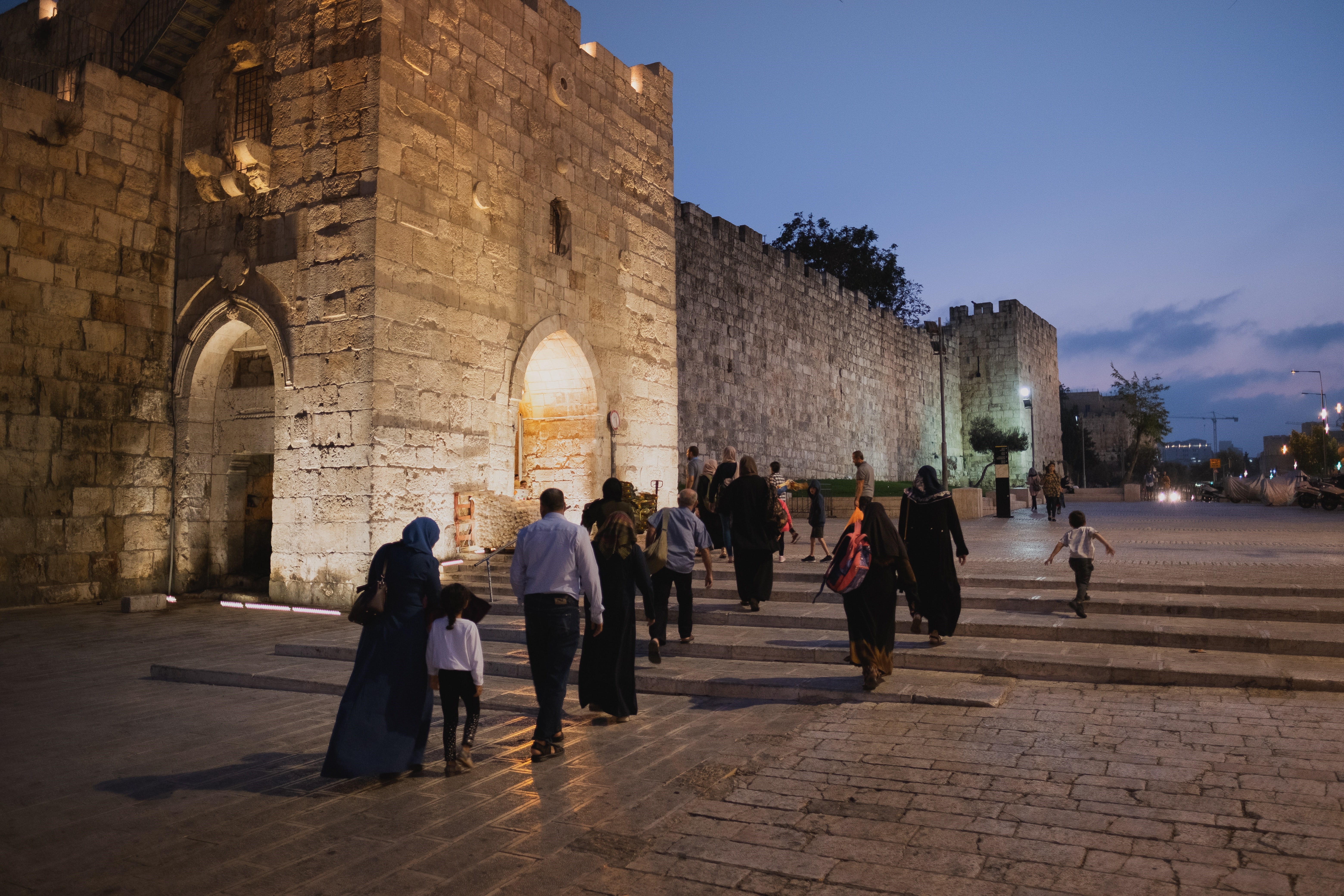
Most Arab Israelis: October 7 Attack Does Not Reflect Islamic, Palestinian, or Arab Society Values
Written By: Dr. Adam Asad, Yaron Kaplan
56% of all Arab Israelis say the attack by Hamas on October 7 does not reflect Arab society, the Palestinian people, and the Islamic nation. 33% say it does and 11% are unsure.
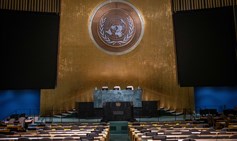
Israel's War in Gaza and International Law
Written By: Prof. Amichai Cohen, Adaya Kisos
International law is a normative system that regulates the conduct between states, organizations recognized by international law and at times, individuals. This explainer presents an overview of international law in conflict and its application in Israel's war against Hamas.

Even on the Right, Israelis Want Elections Immediately After the War
Written By: Prof. Tamar Hermann, Dr. Or Anabi
Two thirds of Israelis do not think that the government currently has a clear plan of action for the next day and the majority, even on the right, believe elections should be held as soon as the war ends. Even so, no significant movement is currently indicated between the political blocs.
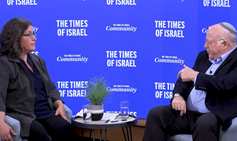
What Matters Now to Prof. Amichai Cohen: Is the IDF acting legally in Gaza?
Written By: Prof. Amichai Cohen
Is the IDF acting legally and ethically in Gaza? The Times of Israel recently held an hour-long webinar on this topic with IDI's Prof. Amichai Cohen.
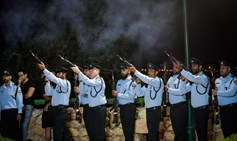
A Blow to Internal Security Governance in Israel
Written By: Adv. Mirit Lavi, Dr. Yael Litmanovitz
During the October 7th attacks, the home front became the front line with Israelis attacked in their own homes. This new reality led not only to a beefed-up presence of police and military forces in public spaces, but to civilian-based security initiatives in many communities. Finding the right balance between the police and civilians is imperative to providing much-needed safety and security for all Israelis.

The Hostage Situation in Gaza and the Responsibilities of the International Community
Written By: Prof. Amichai Cohen, Dr. Shelly Aviv Yeini, Prof. Tamar Hostovsky Brandes
This article discusses the responsibilities of the international community with respect to the ongoing war in Gaza, and particularly focusing on responsibilities with regard to the hostage situation.
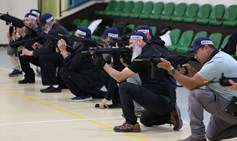
Explainer: Civilian Defense Squads in Urban Settings
Written By: Adv. Mirit Lavi, Dr. Yael Litmanovitz
In recent weeks, since the outbreak of the war in Gaza, some 800 new civilian defense squads have been set up throughout Israel. Each squad consists of local residents who serve as civilian operational reserve forces, available for rapid deployment to assist national security forces during security events and emergency situations.
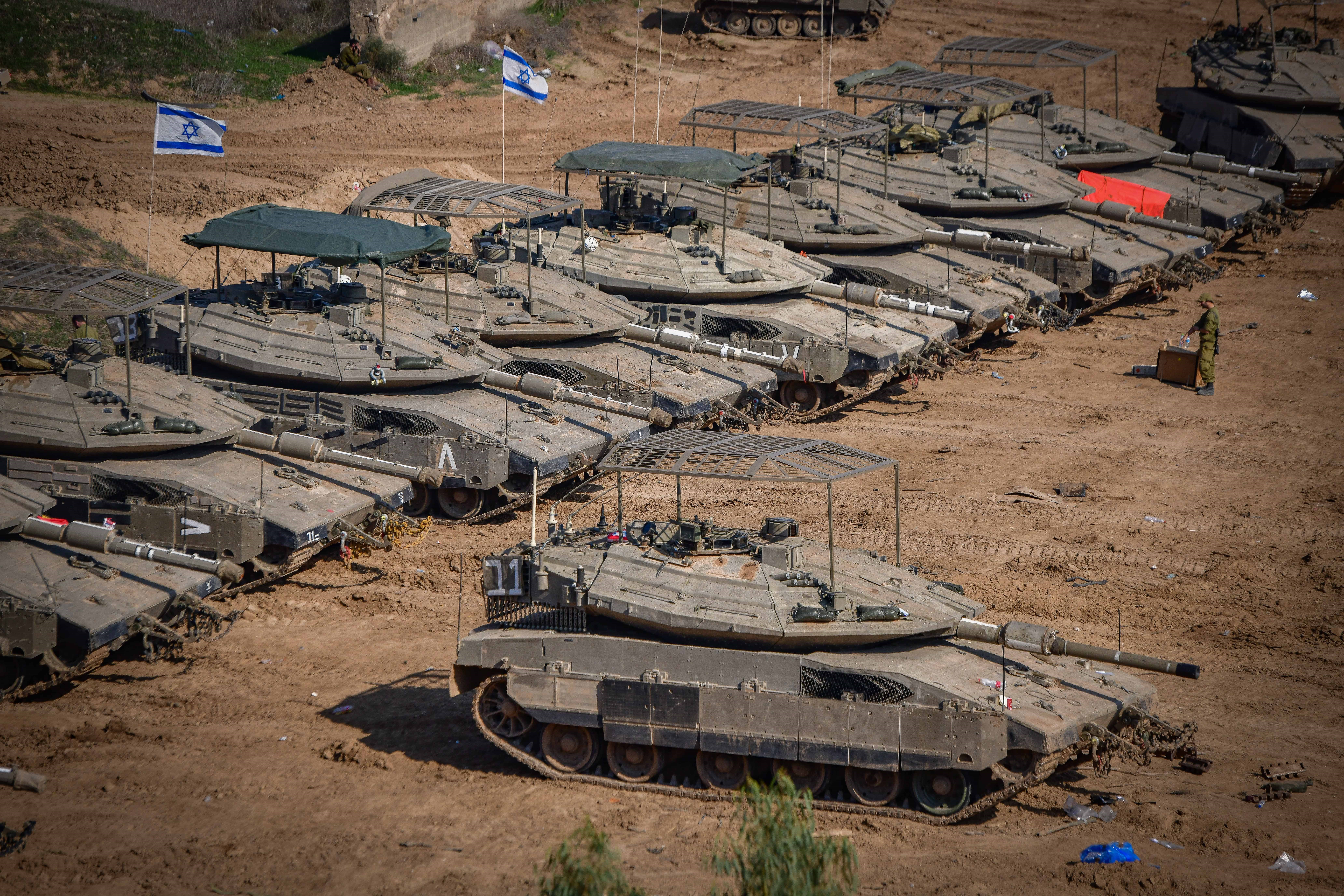
Israelis Sharply Divided on the Question of a Two-State Solution in Return for US Assistance
Written By: Prof. Tamar Hermann, Dr. Or Anabi
Among Jewish Israelis, 75% on the Left support making progress toward a two-state solution to the conflict in return for American assistance, compared to 45% in the Center and only 21% on the Right.
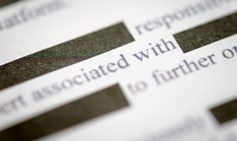
Enough with the Censorship?
Written By: Dr. Guy Lurie, Dr. Tehilla Shwartz Altshuler
Attempts by the Prime Minister to influence the Chief Censor may indicate a concerning erosion of the Military Censor’s independence and professionalism. Clearly, state secrets must be protected, especially during war, but there are better ways for this to be accomplished, more suited to a democratic state.

Slamming wartime misinformation while shaking hands with the man responsible for it
Written By: Dr. Tehilla Shwartz Altshuler
Israeli leaders are calling for the end of disinformation in the war while shaking hands with the man behind so much of it - Elon Musk. The current war has turned X into a human behavior experiment, and we are the lab rats.
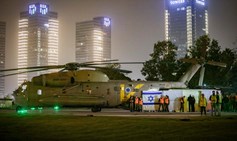
The Worthy Clause in the Nation-State Law
Written By: Dr. Amir Fuchs
The Nation-State Law includes a clause that declares the state's obligation to care for all Jewish people and all Israeli citizens whenever they are in jeopardy due to either their Jewish identity or Israeli citizenship. This does not impose a legal obligation, but it does reflect this special value which must not be lost during this war.
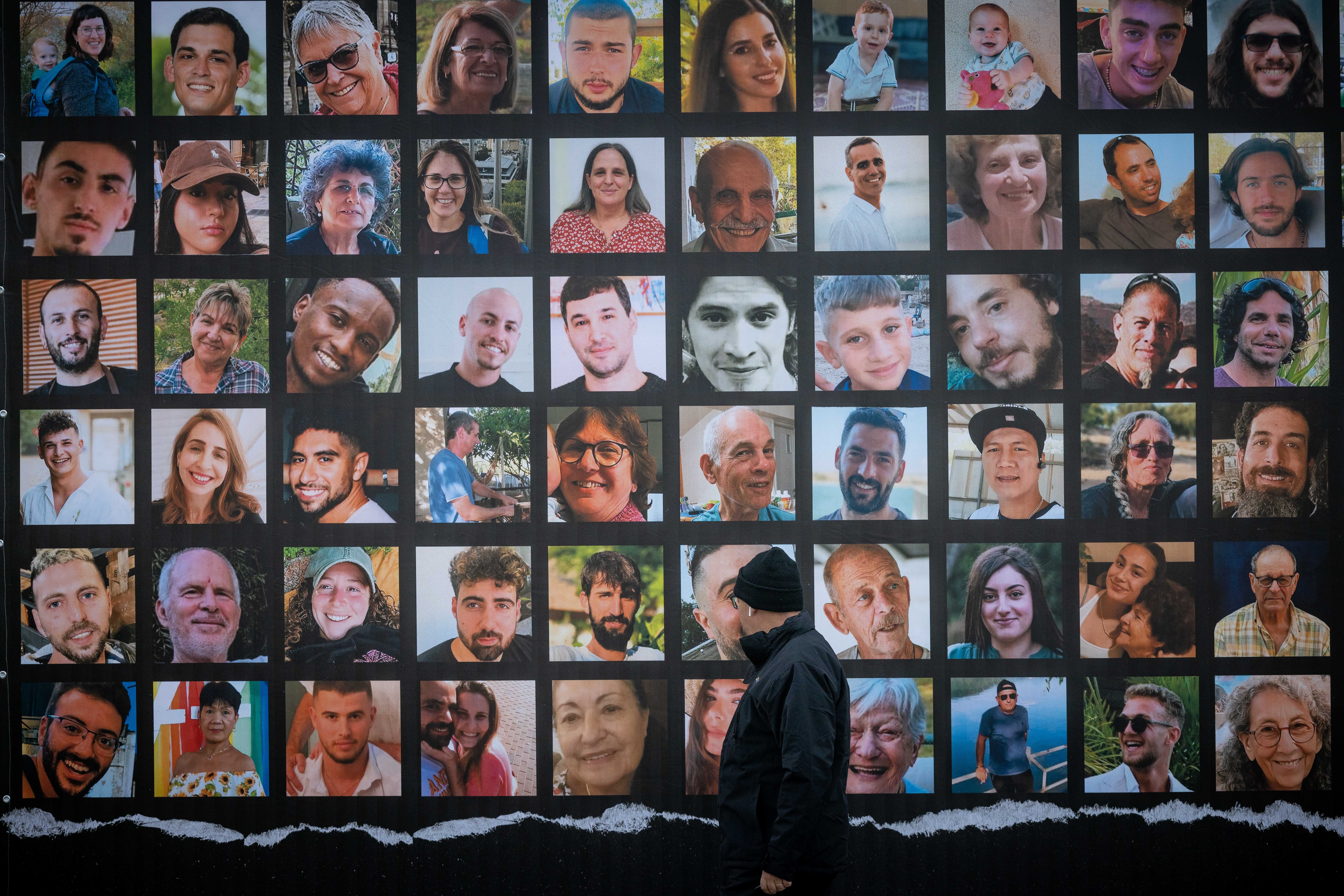
Overwhelming Majority of Jewish and Arab Israelis: The Release of all Hostages is a Goal of Importance
Written By: Prof. Tamar Hermann, Dr. Or Anabi
IDI's fifth War in Gaza survey finds that among Jewish Israelis, toppling Hamas and releasing the hostages are pivotal war-goals. The majority of respondents do not think that the government currently has a clear action for the day after the fighting ends, and there is rising support (56%) for an amendment to the Nation-State Law, to safeguard equality for non-Jewish citizens.
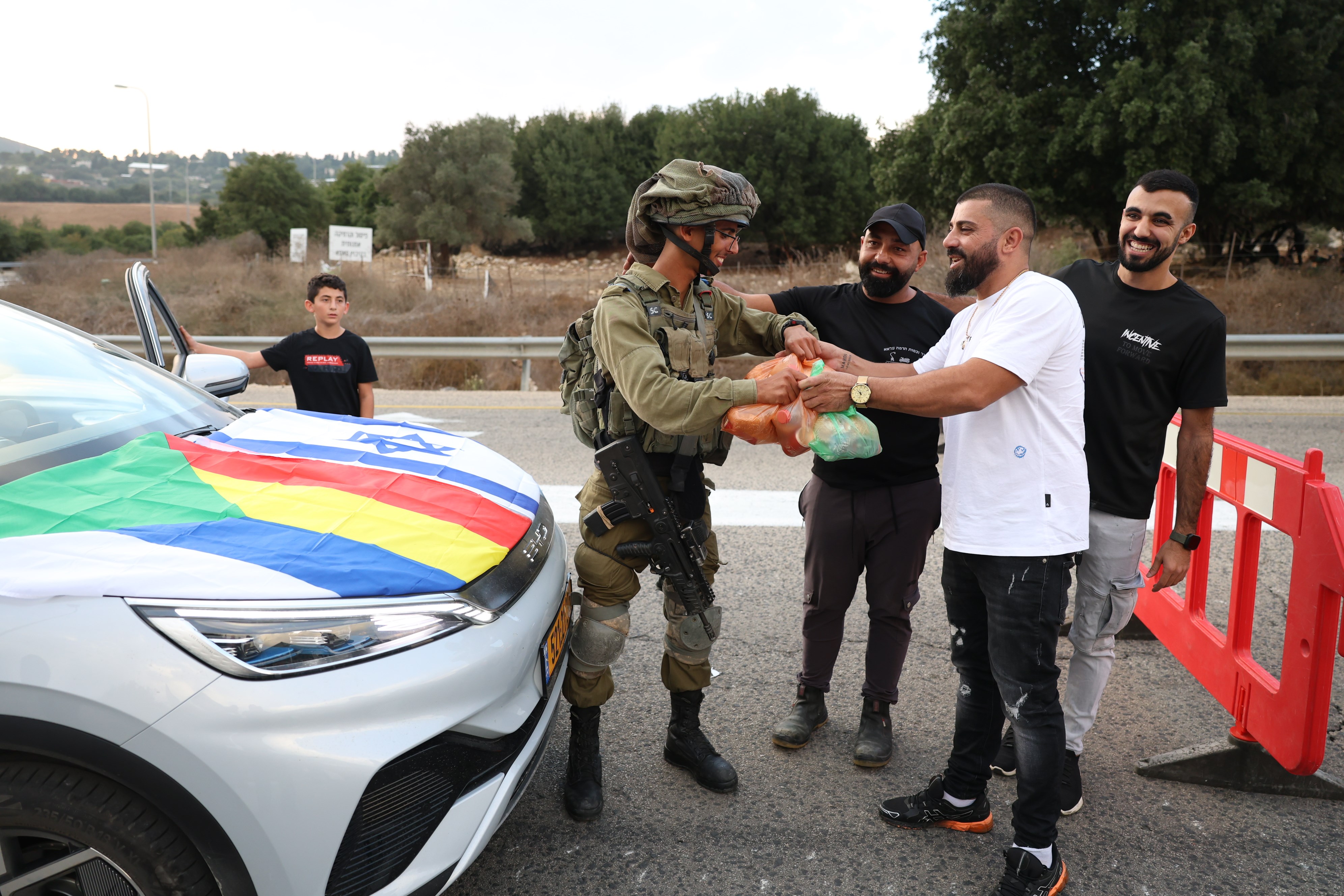
Amend the Nation-State Law. Now.
Written By: Prof. Suzie Navot
Israel's non-Jewish minorities—particularly those who are fighting and dying for the State of Israel—are worthy of appreciation and recognition, not separately, but as equals. The solution is to amend the Nation State Law, not to pass a new, separate basic law as is currently under consideration.
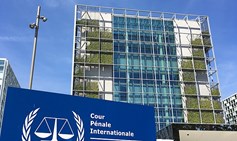
International Law "Made In Israel" Vs. International Law "Made For Israel"
Written By: Prof. Amichai Cohen, Prof. Yuval Shany
Tendentious interpretations of international law are not surprising considering the high emotions surrounding the long and bloody Israeli-Palestinian conflict. However, to serve its purpose guiding the conduct of States and retain a high degree of legitimacy, international law must serve as a common legal language.
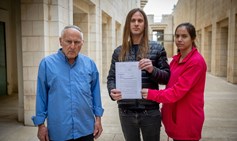
Does the High Court of Justice Intervene in Decisions to Release Prisoners?
Written By: Dr. Moran Kandelshtein-Haina
Appeals to the HCJ to intervene in decisions relating to the release of prisoners are fairly common, but the Court has repeatedly rejected these appeals, noting that on issues of national defense and diplomacy, the bounds for judicial oversight are particularly narrow.
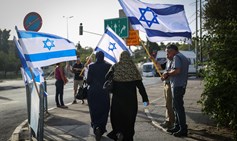
Challenges and Threats: Arab Society in Israel During the War in Gaza
Written By: Dr. Adam Asad
Conciliation between Jews and Arabs in Israel is not just a moral imperative, but also a necessary condition for maintaining peace and stability in the country.

Israel's War Cabinet: A Brief History of War Powers and Institutional Ambiguity
Written By: Prof. Amichai Cohen, Prof. Yuval Shany
The Israeli war cabinet and the complex institutional structure related to war informs greatly on Israel’s decision-making.
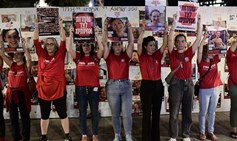
Women in War Under International Law
Written By: Adv. Anat Thon Ashkenazy
Now, when it is clear that Hamas’s murderous attack was unprecedented in its extreme violence, including sexual violence, the relevant international bodies—such as the UN Security Council, UN Women, and the International Red Cross—must respond to these incidents.

Israel's Cyber Front Is Unprepared
Written By: Dr. Tehilla Shwartz Altshuler
From network hacking to disinformation, Israel is unprepared for combat in today's fourth dimension of warfare.
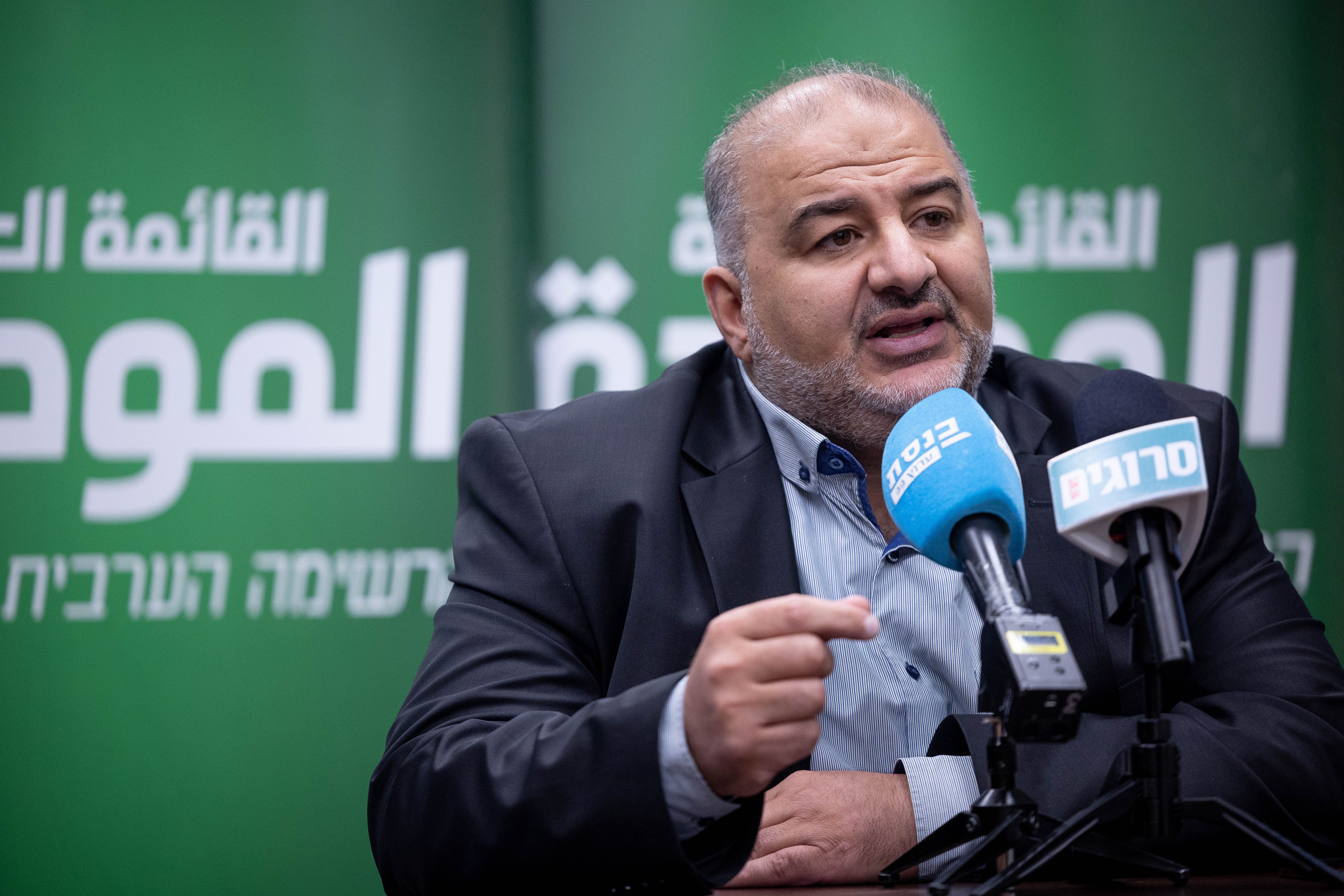
On a tightrope: Israel’s Arab citizens and the War Between Israel and Hamas
Written By: Dr. Arik Rudnitzky
The political mainstream in Arab society identifies with the Palestinian cause, namely the struggle for a two-state solution and peace between Israel and the Palestinians. The vast majority of Arab citizens strongly criticizes Hamas’ practices and completely rejects Hamas’ militant approach to the Israeli-Palestinian conflict.
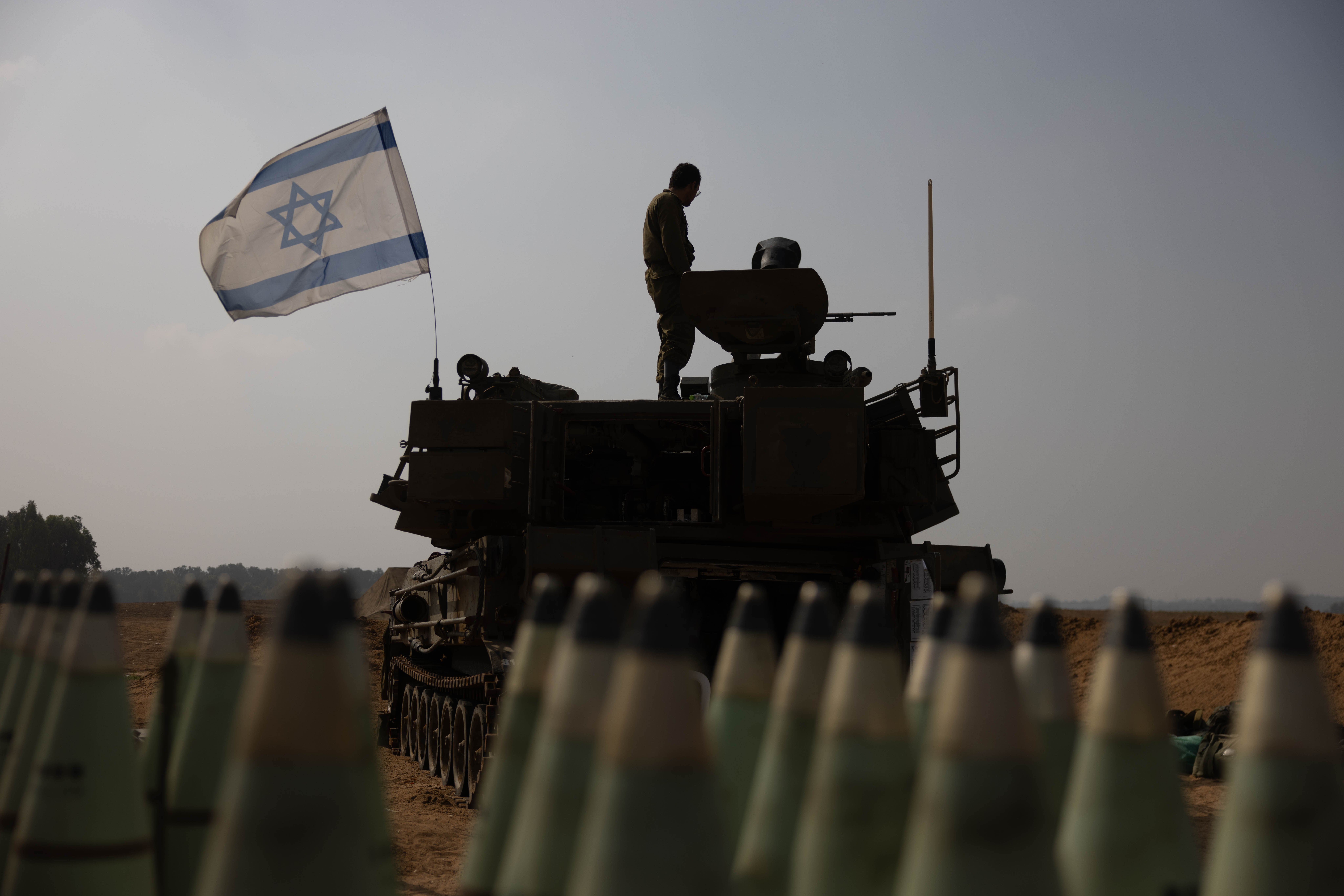
Flash Survey: Israelis support immediate negotiations to release the hostages while fighting continues
Written By: Prof. Tamar Hermann, Dr. Or Anabi
A majority of the Jewish public think the government's focus on the judicial overhaul had a critical impact on the timing of Hamas' Oct. 7th attack. Support for negotiations for the release of the hostages in Gaza has risen, but most think the fighting should not stop.
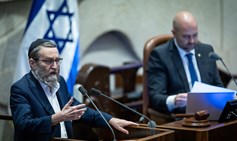
The Gap Between the Haredi Public and Politicians
Written By: Dr. Gilad Malach
The divide between Israel's Haredi (ultra-Orthodox) public and the Haredi establishment and political leadership has never been more striking. Many parts of Haredi society have joined the national war efforts while the Haredi political leadership have acted as if nothing has happened.
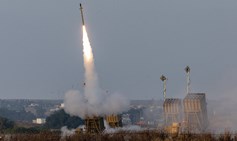
Israel's Defense Establishment Must Rethink its Conception of Technological Superiority
Written By: Dr. Tehilla Shwartz Altshuler
The paradigm of reliance on technology for our security seems to have led us to a point in which infinite data points and technological tools are at our disposal failed to produce a response. It is of course essential to continue investing in technological superiority, but this needs to be done with a clearer head.
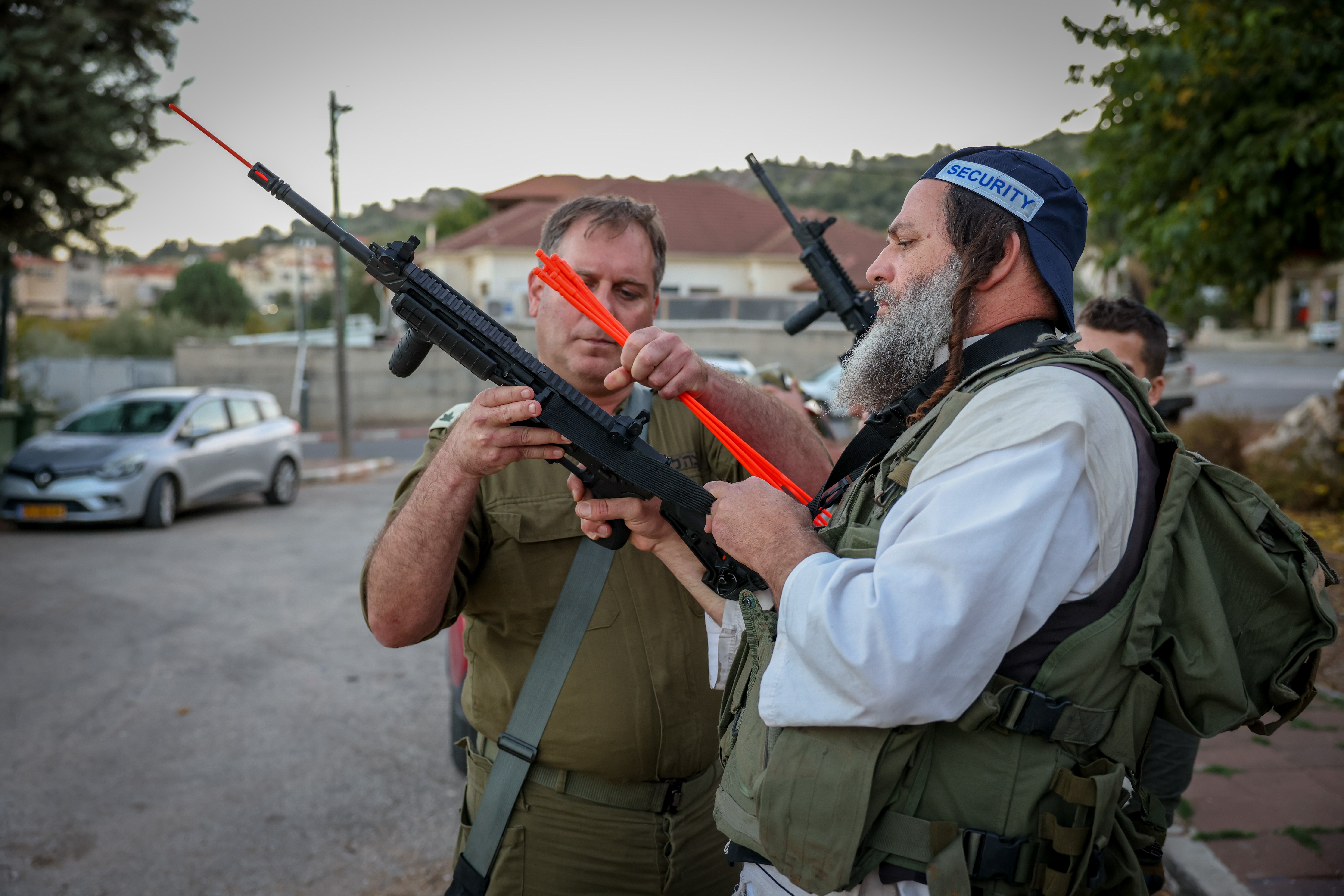
Haredi Enlistment for the Current War with Hamas is a Sign of a New Model of Rabbinic Leadership
Written By: Tehila Gado
The heads of the established traditional Haredi yeshivot have instructed their institutions to continue studies as normal during the current state of emergency, in accordance with the belief in the power of Torah study to protect the people of Israel. By contrast, the messages heard from various other rabbis reflect an understanding of changing needs and offer a blueprint for a new leadership vision.

The Path to Victory is Through Silicon Valley
Written By: Dr. Tehilla Shwartz Altshuler
The ongoing war highlights the transformation of technology giants, once American-based corporations, into international entities. Within the Western aid package to Israel, it is imperative to enforce global accountability upon these companies

Israel's Irresponsible Expansion of Eligibility for a Handgun License
Written By: Adv. Mirit Lavi
Israel's new firearms regulations now allow hundreds of thousands of citizens to carry handguns, without the necessary checks or oversight. They have been passed too rapidly during the current emergency, without enough thought about the dangerous consequences of dramatically expanding eligibility for a handgun license.
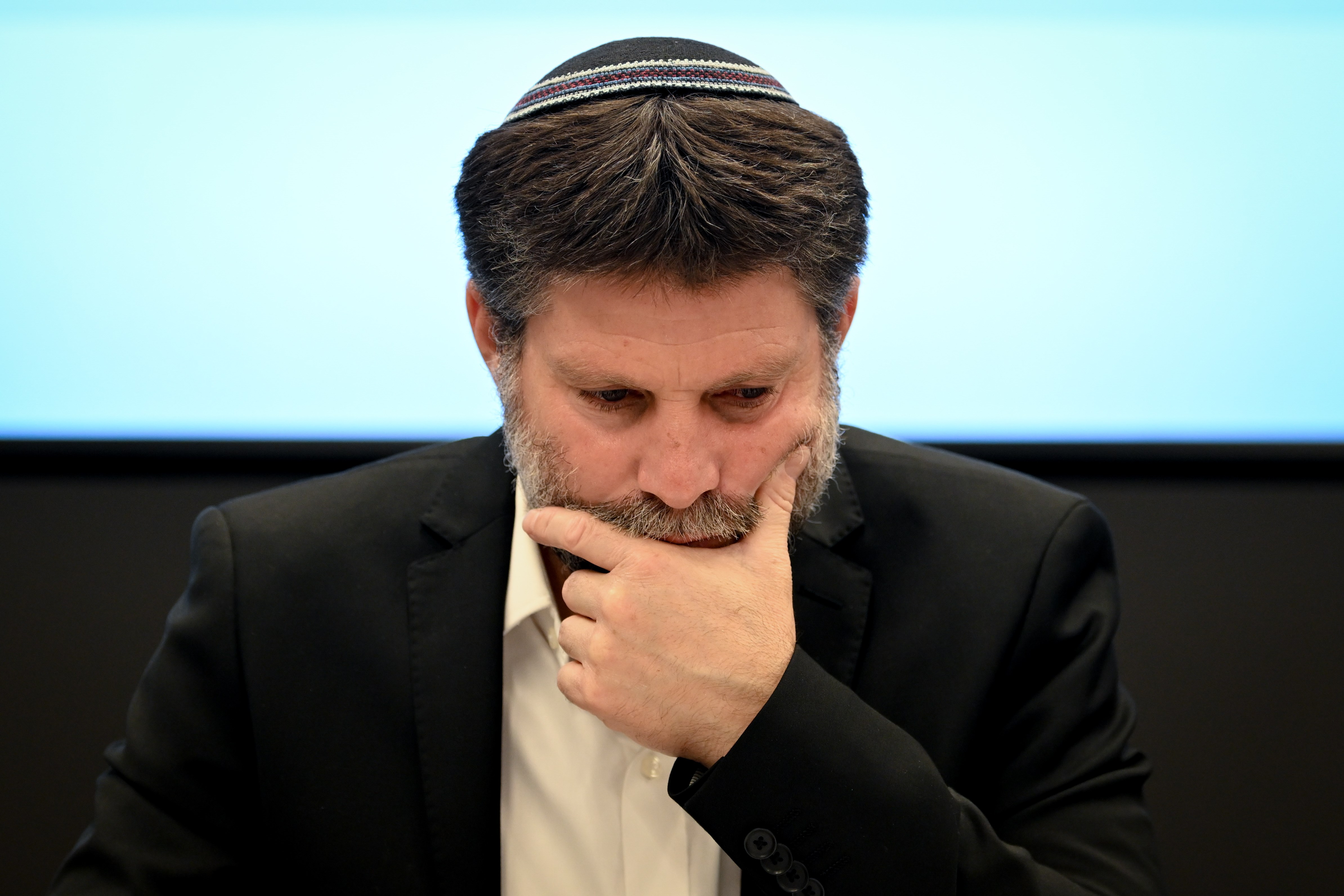
Fighting for our Home: The Economic Front
Written By: Prof. Karnit Flug, Prof. Jacob Frenkel
The ongoing war poses unprecedented challenges—military, civilian, geopolitical, and economic. Our focus is on providing necessary responses to the needs of the military, the needs of those directly affected in combat areas, mitigating the financial damage to businesses and employees, and rebuilding the communities destroyed on October 7.
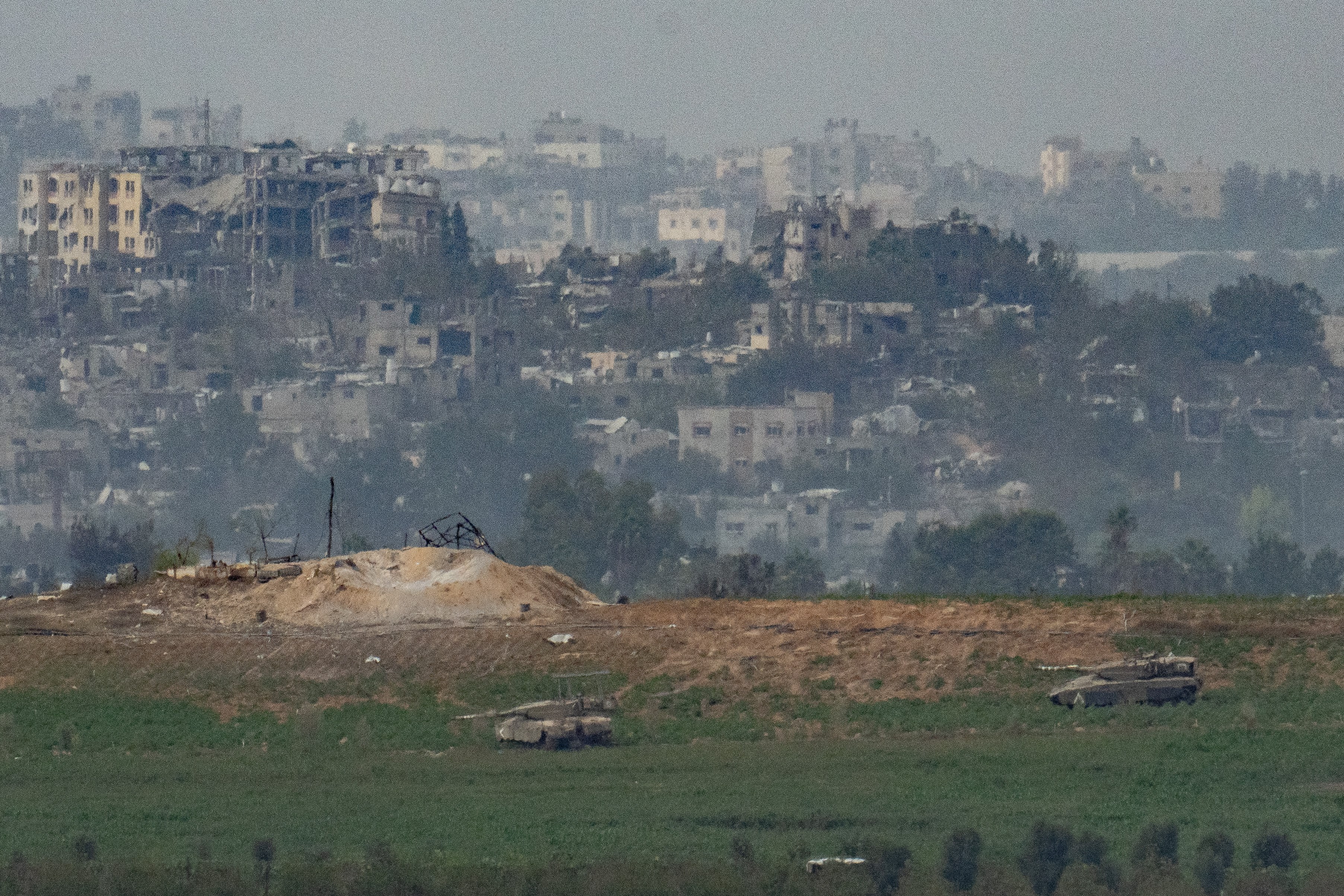
Most Israelis Prefer to Wait Until After the War to Designate Responsibility
Written By: Prof. Tamar Hermann, Dr. Or Anabi
The October 2023 edition of the Israeli Voice Index shows that a significant majority of Jewish Israelis trust the heads of the IDF over PM Netanyahu. If elections were to be held today, a majority of Israelis (55%) would vote for the same bloc they voted for in the last elections.
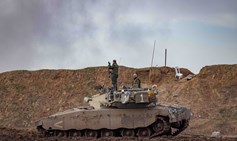
Unpacking Key Assumptions Underlying Legal Analyses of the 2023 Hamas-Israel War
Written By: Prof. Amichai Cohen, Prof. Yuval Shany
The current round of violence between Hamas and Israel has already given rise to many expressions of legal opinion. In this essay, we map some key assumptions and unpack how they can significantly affect ongoing legal debates and deliberations.
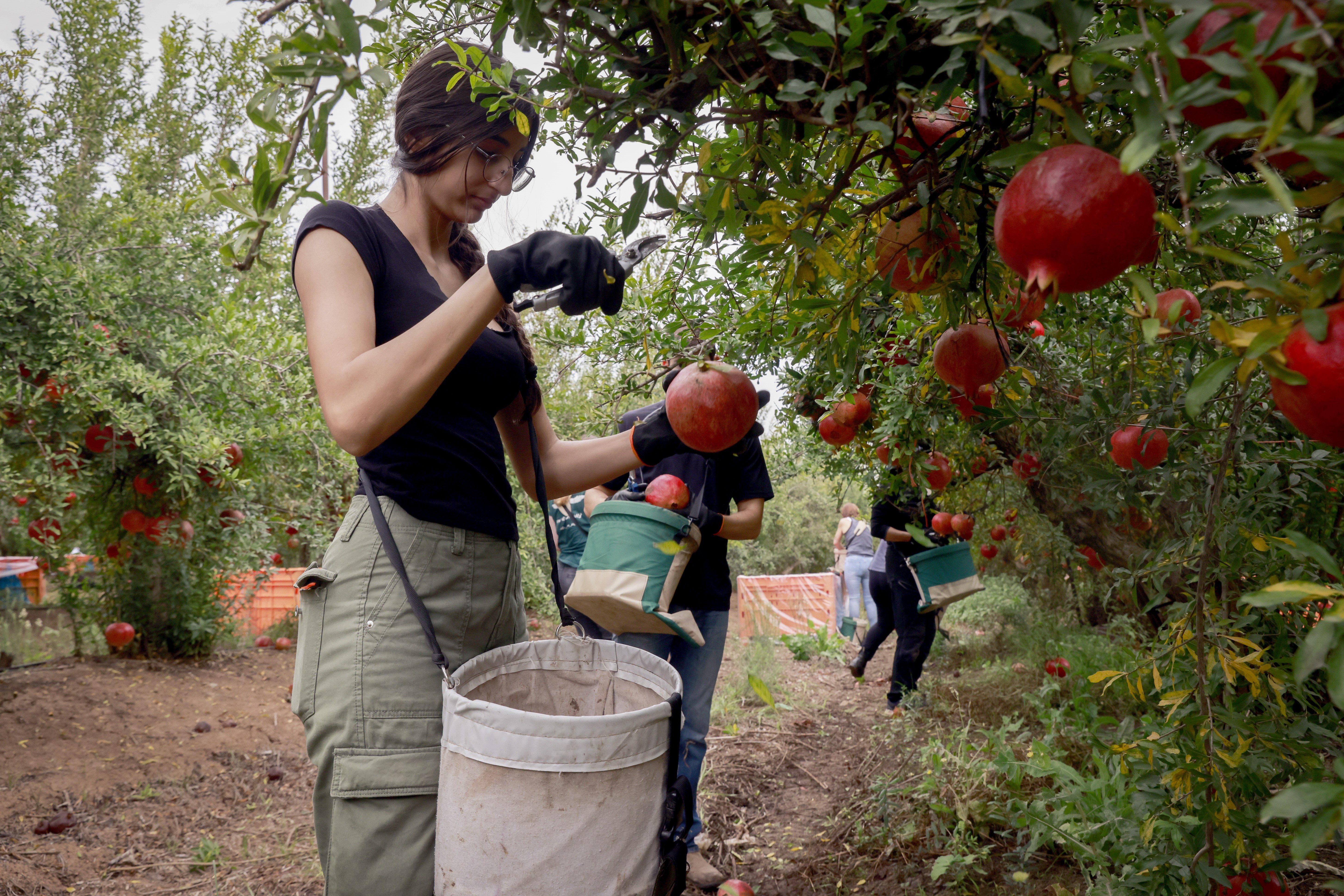
The Link Between Labor Shortages and Israel’s Strategic Security
Written By: Daphna Aviram-Nitzan
The government of Israel must recognize the strategic importance of agriculture, the food sector, and other industries producing goods that are vital for the country’s security and for the continued functioning of the business sector during times of emergency and war
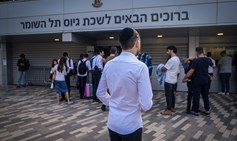
Haredi Enlistment In the IDF – A New Normal?
Written By: Eliyahu Berkovits
A growing number of Haredi men are volunteering for the IDF following the outbreak of the war against Hamas. This trend may signify that the “modern Haredi” phenomenon may be developing into a real movement.
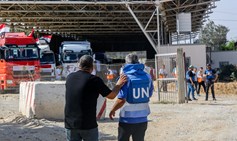
The War on Hamas and International Law
Written By: Prof. Amichai Cohen, Tamar Hostovsky Brandes
International law does not forbid the evacuation of residents to the southern Gaza Strip; on the contrary, it would appear to demand of Israel that it warns residents and encourages them to leave.
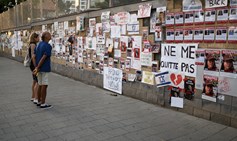
The Hamas Abductions and International Law
Written By: Prof. Amichai Cohen
Details and clarifications on the international crimes committed by the Hamas in their abduction of Israeli civilians, and the responsibilities attached to these crimes.

A Moment of Truth: International Humanitarian Law and the Gaza War
Written By: Prof. Amichai Cohen
Hamas’s horrendous October 7 attack on Israeli civilians and Israel’s anticipated response pose a unique challenge to scholars and practitioners of the Law of Armed Conflict or International Humanitarian Law (IHL), possibly a challenge they have never faced before.
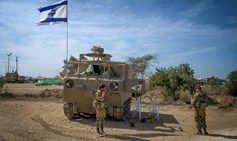
Flash Survey: More Israelis are optimistic about the country's future despite being at war
Written By: Prof. Tamar Hermann, Dr. Or Anabi
Despite being at war, more Israelis are optimistic about the future of the country than earlier this year, yet most Israelis (64%) fear for their physical safety or that of their immediate family members.
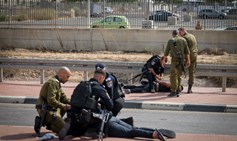
The Police at War, As I Explained to My Son
Written By: Dr. Yael Litmanovitz
Policing does not usually involve battles with terrorists. But the unique situation in Israel has shaped the role of our police officers to include internal security missions. What are the skills and capabilities required of police officers in Israel? Do they have sufficient funding? Those are some of the questions Israeli society must attend to once the current crisis is over.
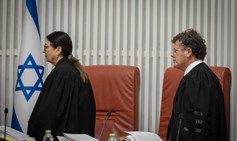
Israel needs a strong supreme court now more than ever
Written By: Dr. Guy Lurie
Justice Hayut's retirement from the presidency of the Supreme Court was well-known in advance, however, the Minister of Justice's refusal to convene the Judicial Selection Committee leaves Israel with a temporary replacement during a national emergency.

Israel – Hamas 2023 Symposium – Beyond the Pale: IHRL and the Hamas Attack on Israel
Written By: Prof. Amichai Cohen, Prof. Yuval Shany, Prof. Tamar Hostovsky Brandes
The article explores the applicability of international human rights law (IHRL) to the atrocities committed by Hamas on October 7, 2023. Such an analysis is important to fill in gaps in IHL and to establish the jurisdiction of IHRL mechanisms over the violations committed.

Special State of Emergency in Israel’s Court System
Written By: Dr. Guy Lurie
What is a special state of emergency and who declares it?
Minister of Justice Levin declared a "special state of emergency" on October 7th, which has since been extended and is currently valid until October 20th. How does this affect the justice system in Israel?

The Case for a Lean, Unified Wartime Cabinet
Written By: Prof. Amichai Cohen
The main demand made by Benny Gantz, chair of the National Unity party, for entering an emergency government is the establishment of a war cabinet. Why is this important and what would the powers of a war cabinet be?
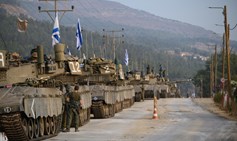
The War on Hamas: The Decision to Go to War, in Theory and Practice in Israel
Written By: Prof. Amichai Cohen, Dr. Eran Shamir-Borer, Adv. Mirit Lavi
Is the operation in Gaza a war, who is authorized declare war and what is the role of the cabinet and the government after war is declared?
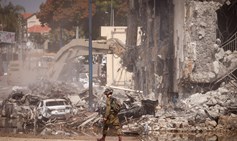
Israel at War: Special Situations and Emergency Events
Written By: Prof. Amichai Cohen, Adv. Mirit Lavi
The government has once again declared a "special home front situation" as the war in the north intensifies. What does this mean?
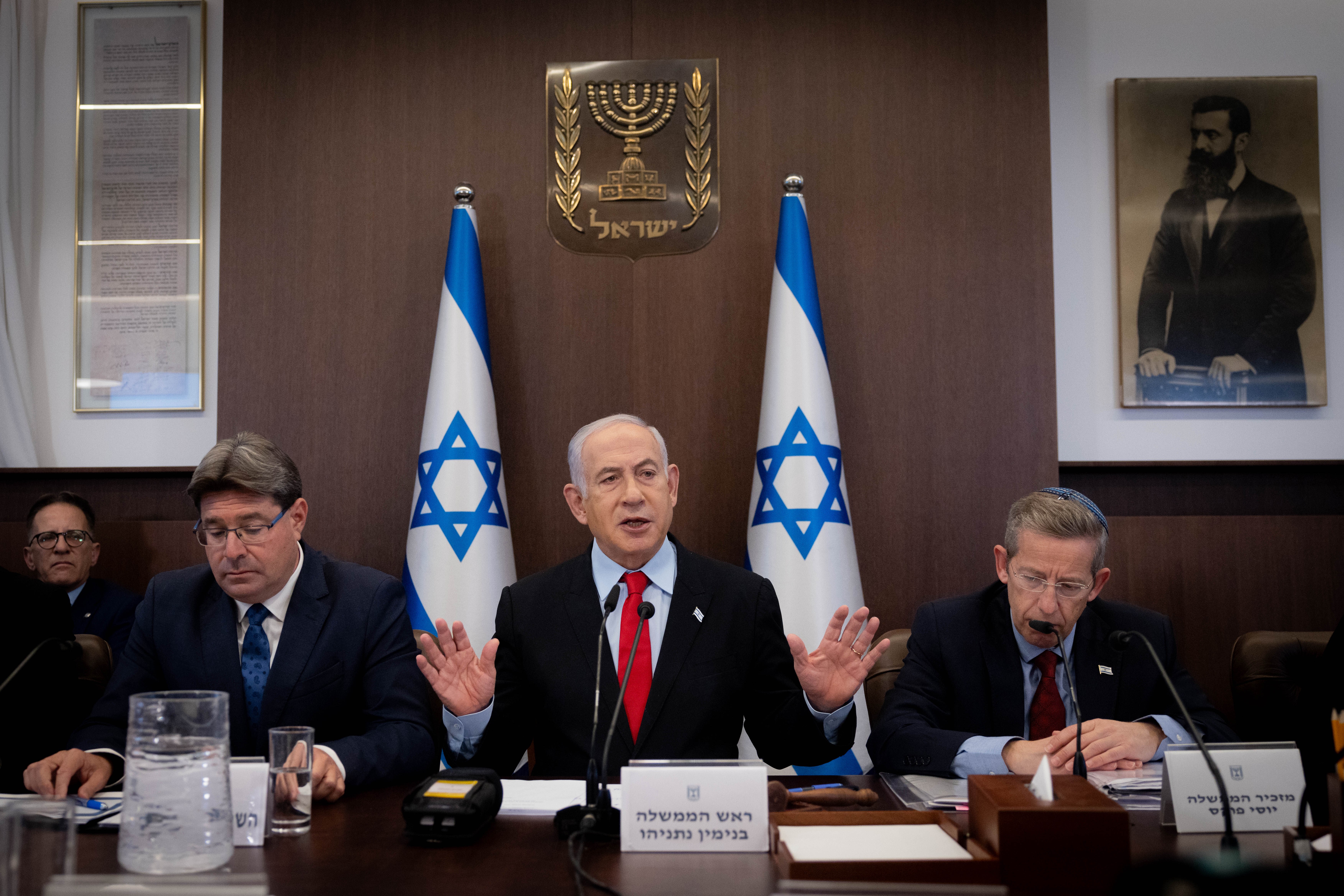
Emergency Governments in Israel
Written By: Dr. Assaf Shapira
As the brutal attack from Gaza continues, the possibility of a change in the composition in the government is being bandied about. What kind of government is possible and what has been done in the past?

Weakening the Civil Service is Part of the Price of the Collapse of the “Perceived Reality”
Written By: Adv. Rita Golstein-Galperin
It is no surprise that the civil service has suffered a severe blow as the current hostilities continue. In light of recent actions aimed at undermining the public sector, immediate action must be taken to address this situation in order to restore social resilience.



